Cities with the highest rates of depression
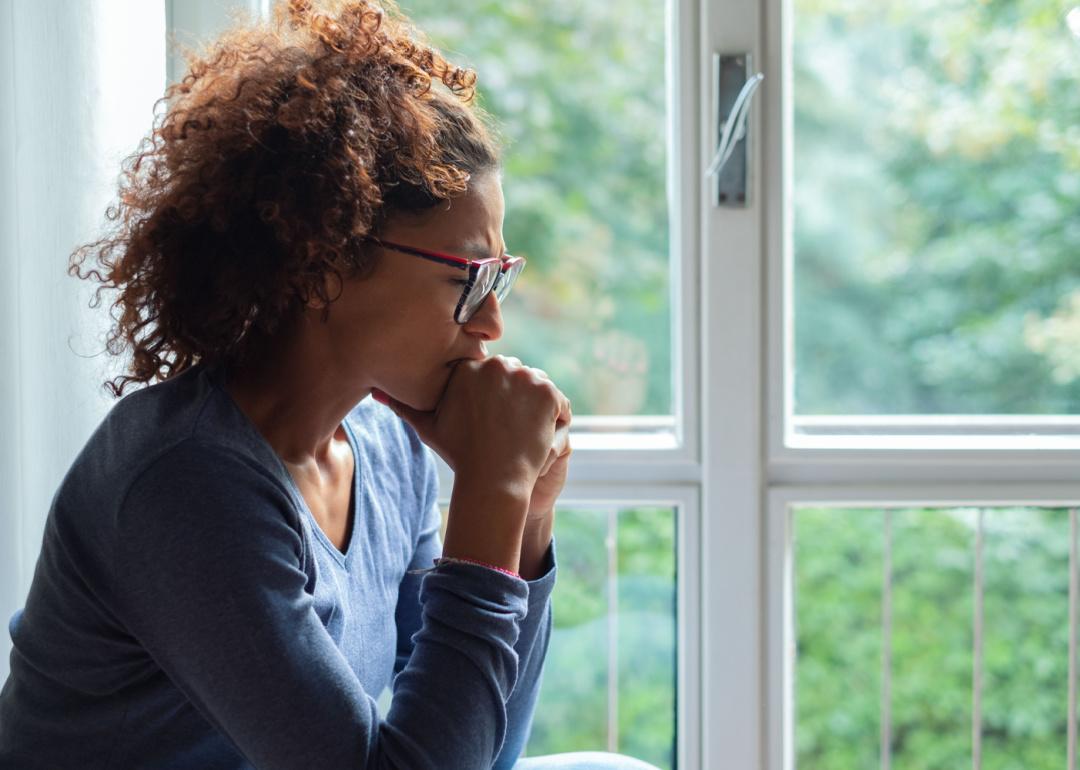
tommaso79 // Shutterstock
Cities with the highest rates of depression
Portrait of pensive woman beside window.
Depression has taken an increasingly firm grip on Americans’ lives over the past decade, with both self-reported lifetime and current depression rates among U.S. adults increasing each year—and hitting a high in 2023—according to Gallup poll data. The COVID-19 pandemic significantly worsened the nation’s overall mental health, with the rate of elevated depressive episodes increasing from 27.8% at the beginning of the pandemic to 32.8% in 2021, a longitudinal study published that year showed.
The pandemic hurt public mental health due to increased isolation during lockdowns, financial insecurity, illness, and grief. Consequently, public health outcomes linked with depression and anxiety deteriorated during that time, according to the Kaiser Family Foundation. For instance, age-adjusted drug overdose rates rose from 21.6 to 32.4 deaths per 100,000 from 2019 to 2021. Alcohol-induced death rates increased from 10.4 to 14.4 deaths per 100,000 in the same time frame. The foundation reported that the pandemic’s effects, as measured by these indicators, were especially pronounced in rural and low-income populations as well as in communities of color.
Stacker examined data from the Centers for Disease Control and Prevention’s annual PLACES report, released in July 2023, to see which cities had the highest share of adults diagnosed with depression. Cities are ranked by the share of respondents to a 2021 survey who reported having been told by a health professional that they had depressive disorder. In the event of a tie, the overall population was used. Cities with at least 10,000 residents were included.
The current ranking primarily features cities in the South, a part of the U.S. with elevated poverty rates that also saw consistently higher COVID-19 mortality rates during the pandemic. The confluence of these risk factors likely contributed to increased depression rates in Southern cities. According to the 2021 longitudinal study, while low-income individuals were 2.3 times more likely to experience elevated depressive episodes than those with high incomes prior to COVID-19, this odds ratio jumped to 7 as the pandemic progressed.
However, the pandemic and its ramifications don’t fully explain the regional distribution of cities in the ranking. Cities in the Pacific Northwest also appear frequently on the list, likely due to the area’s climatic conditions. These states are home to places with some of the highest precipitation in the nation. A 2014 study in the International Journal of Preventive Medicine found that depression was more prevalent in areas with higher numbers of cold and rainy days in a given year.
![]()
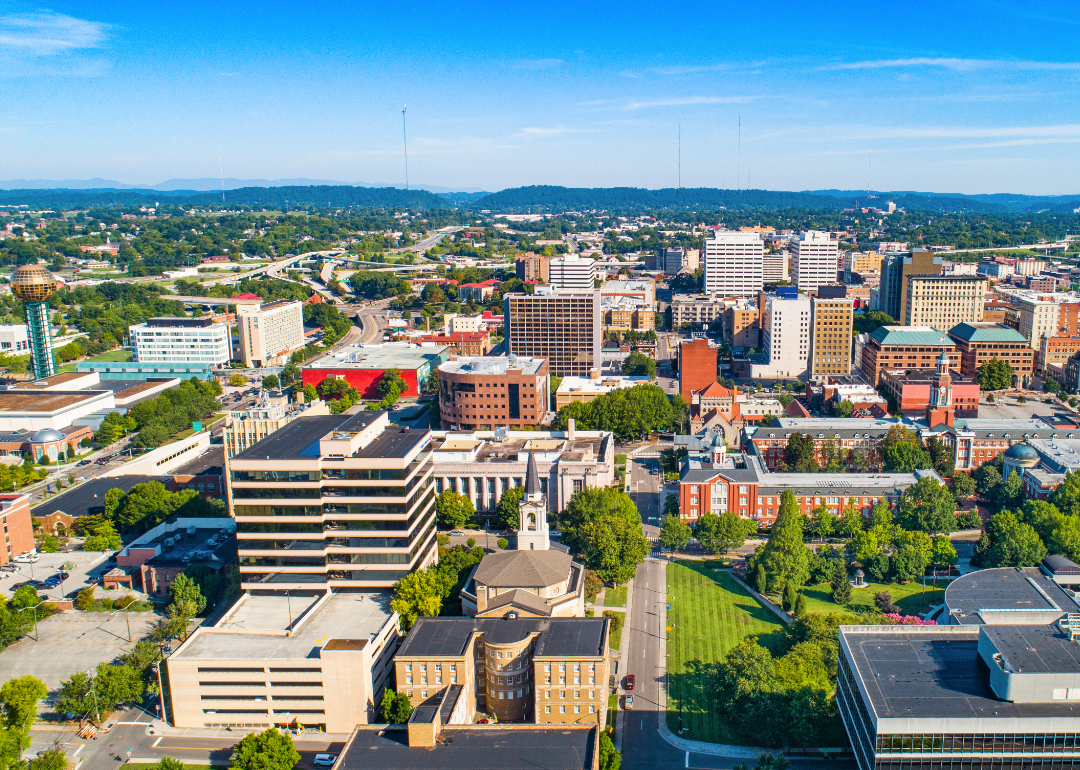
Canva
#50. Seymour, Tennessee
Aerial view Knoxville and surrounding area.
– Total population: 10,919
– Share of adults who are depressed: 29.0%
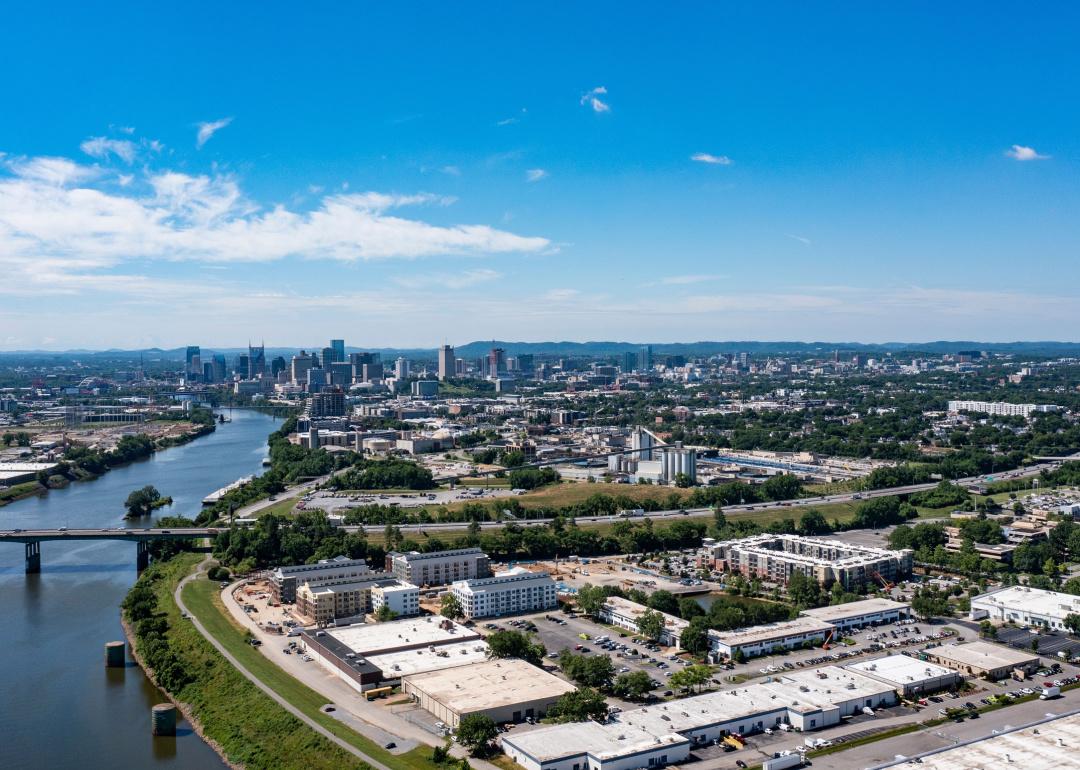
Cory Woodruff // Shutterstock
#49. Dickson, Tennessee
Aerial view West Nashville and surrounding.
– Total population: 14,721
– Share of adults who are depressed: 29.0%
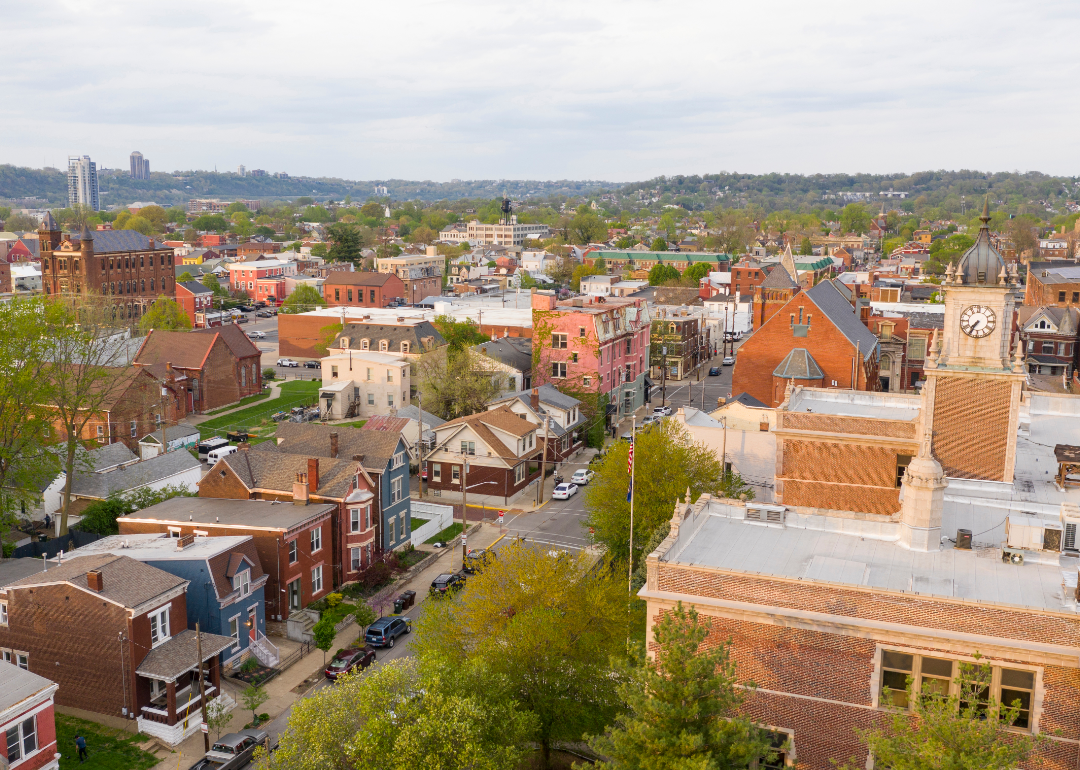
Canva
#48. Newport, Kentucky
Elevated cityview of Newport.
– Total population: 15,273
– Share of adults who are depressed: 29.0%
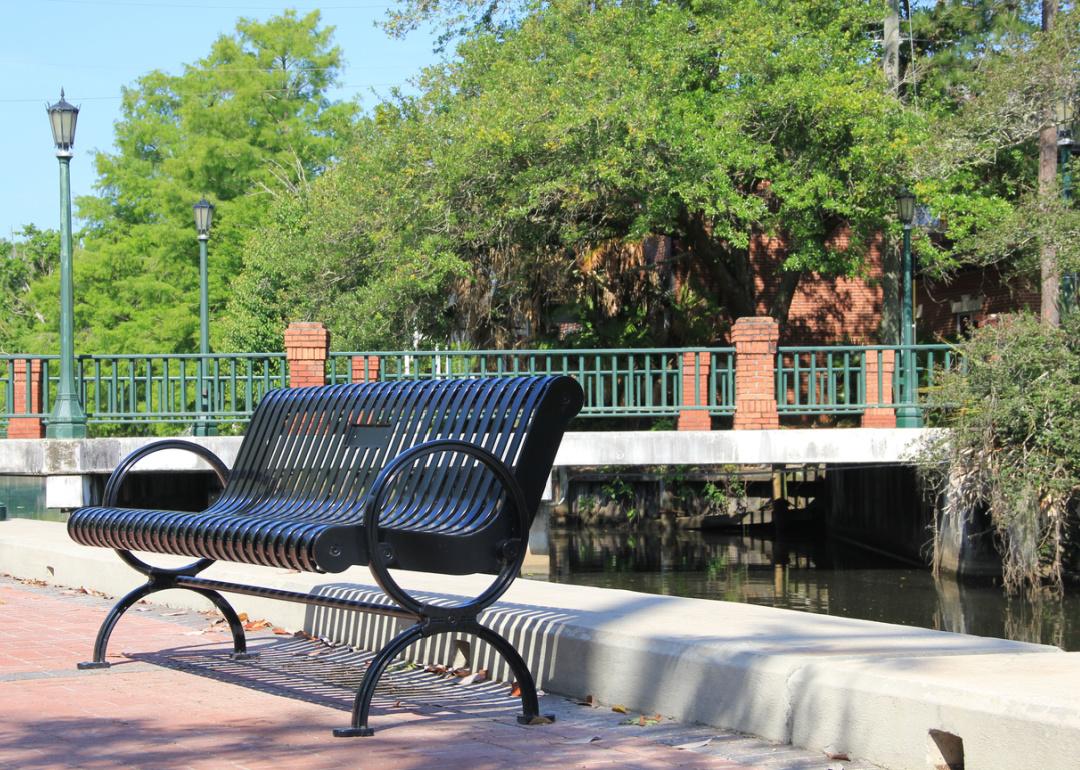
SummerRain // Shutterstock
#47. Bayou Cane, Louisiana
Bench and bridge in Houma.
– Total population: 19,355
– Share of adults who are depressed: 29.0%
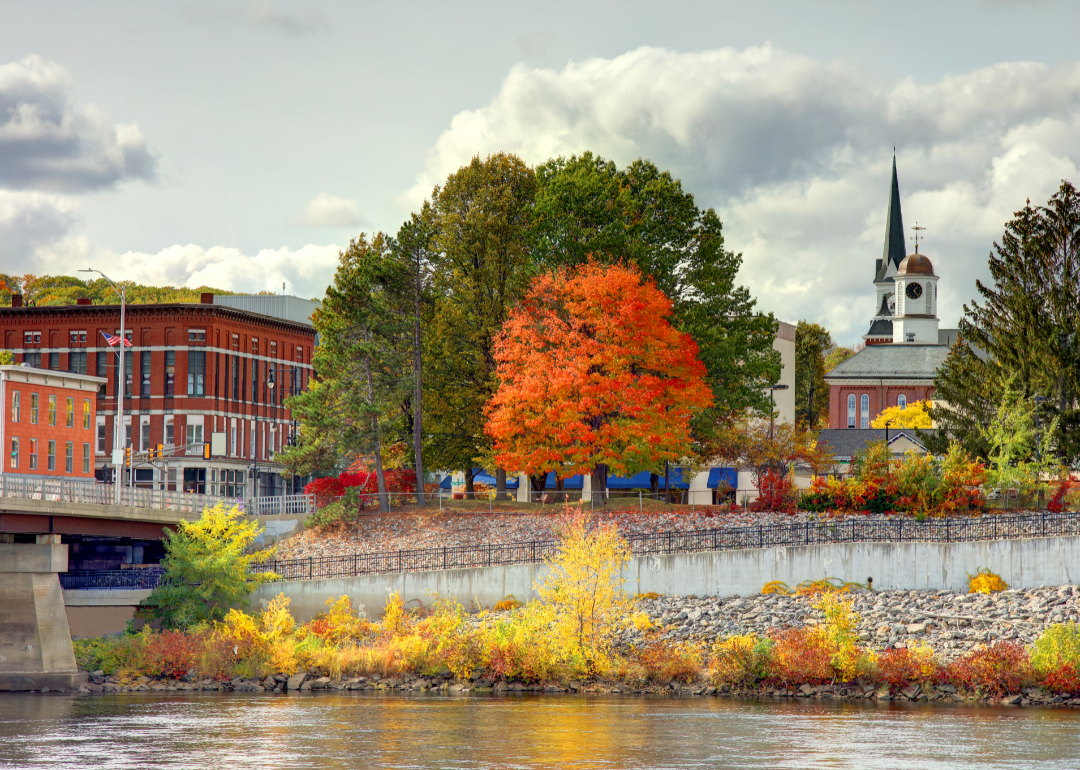
Canva
#46. Auburn, Maine
Autumn in Auburn.
– Total population: 23,055
– Share of adults who are depressed: 29.0%
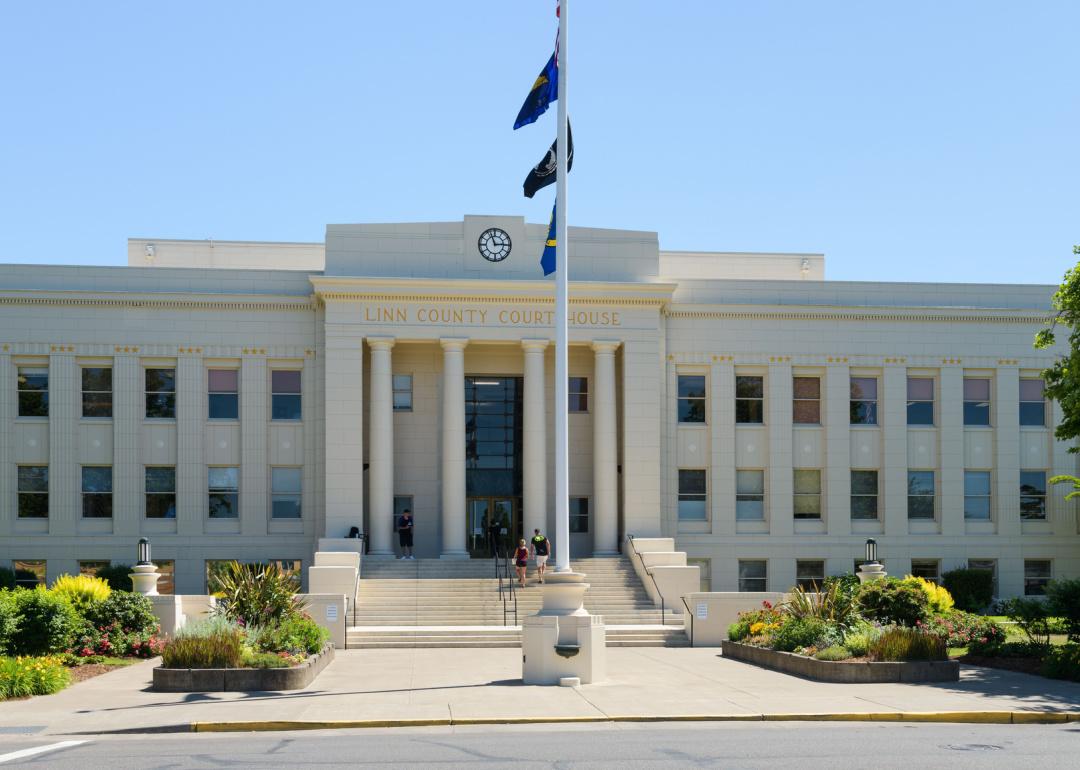
Ian Dewar Photography // Shutterstock
#45. Lebanon, Oregon
Linn County Court House.
– Total population: 15,547
– Share of adults who are depressed: 29.1%
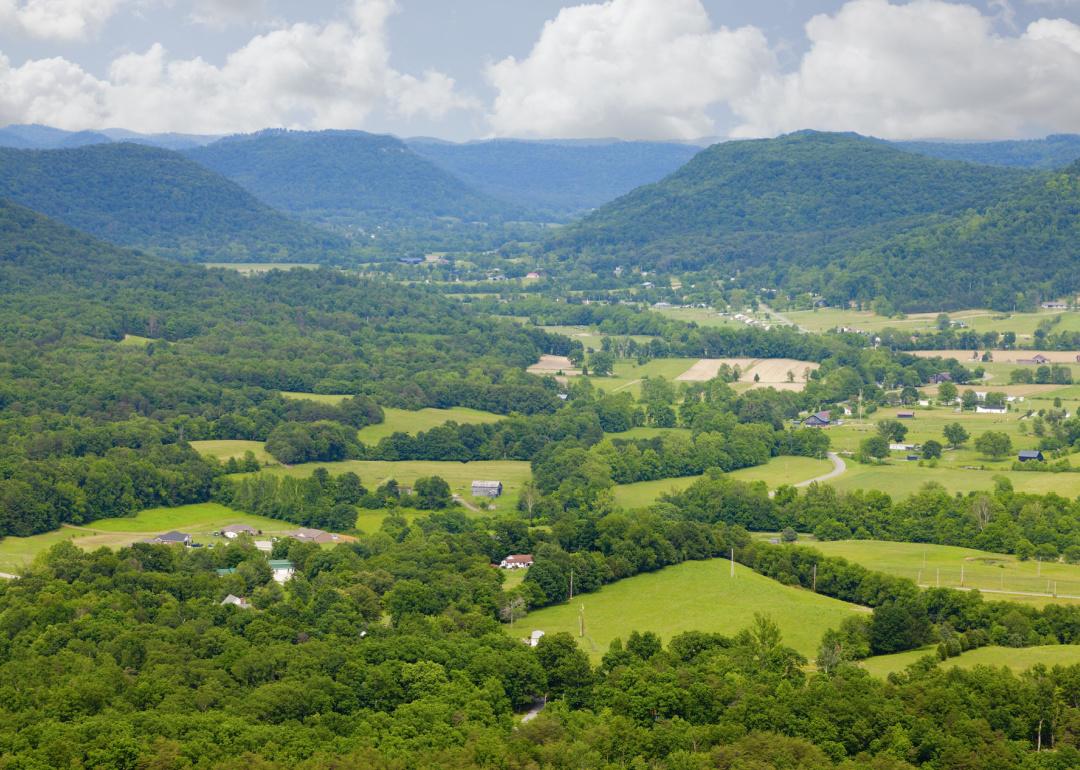
Alexey Stiop // Shutterstock
#44. Campbellsville, Kentucky
Central Kentucky landscape.
– Total population: 10,399
– Share of adults who are depressed: 29.2%
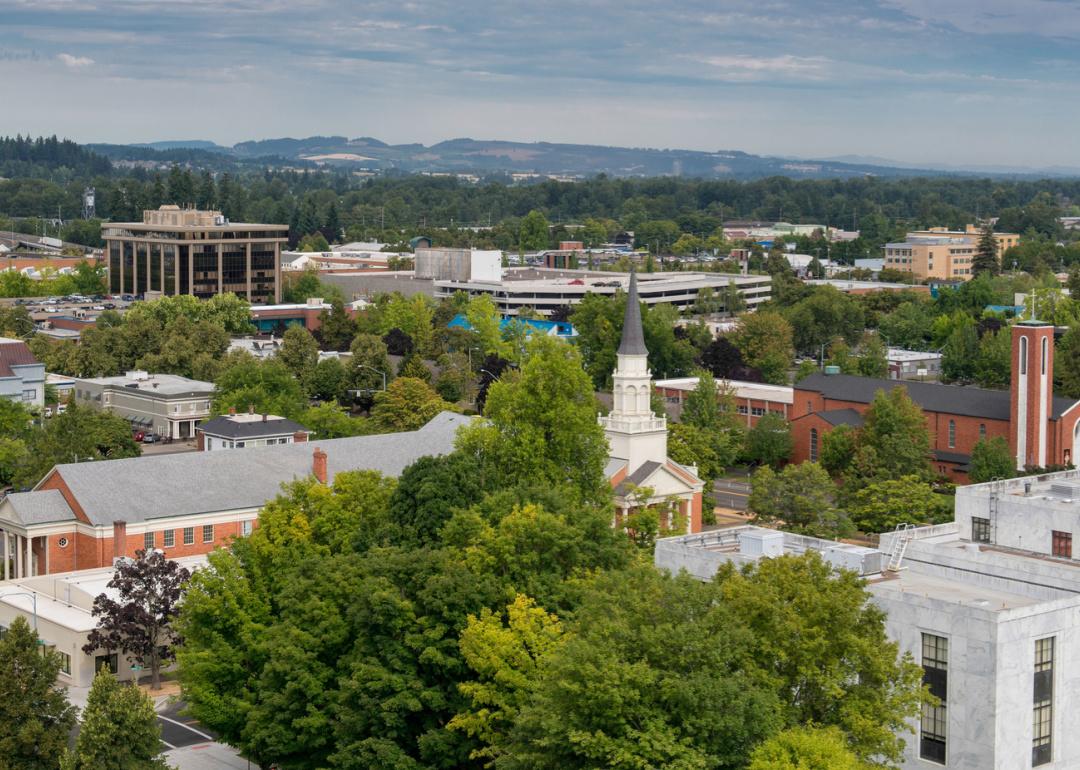
Nagel Photography // Shutterstock
#43. Four Corners, Oregon
Elevated view of Salem.
– Total population: 15,718
– Share of adults who are depressed: 29.2%
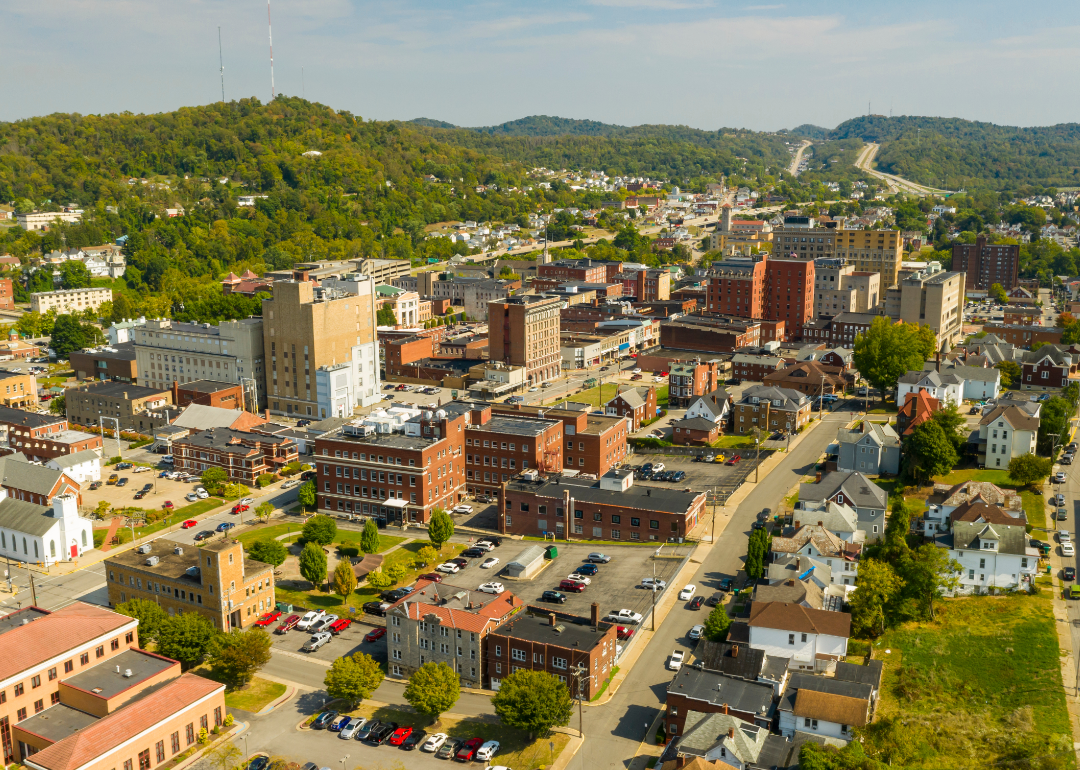
Canva
#42. Clarksburg, West Virginia
Aerial view over Clarksburg.
– Total population: 16,575
– Share of adults who are depressed: 29.2%
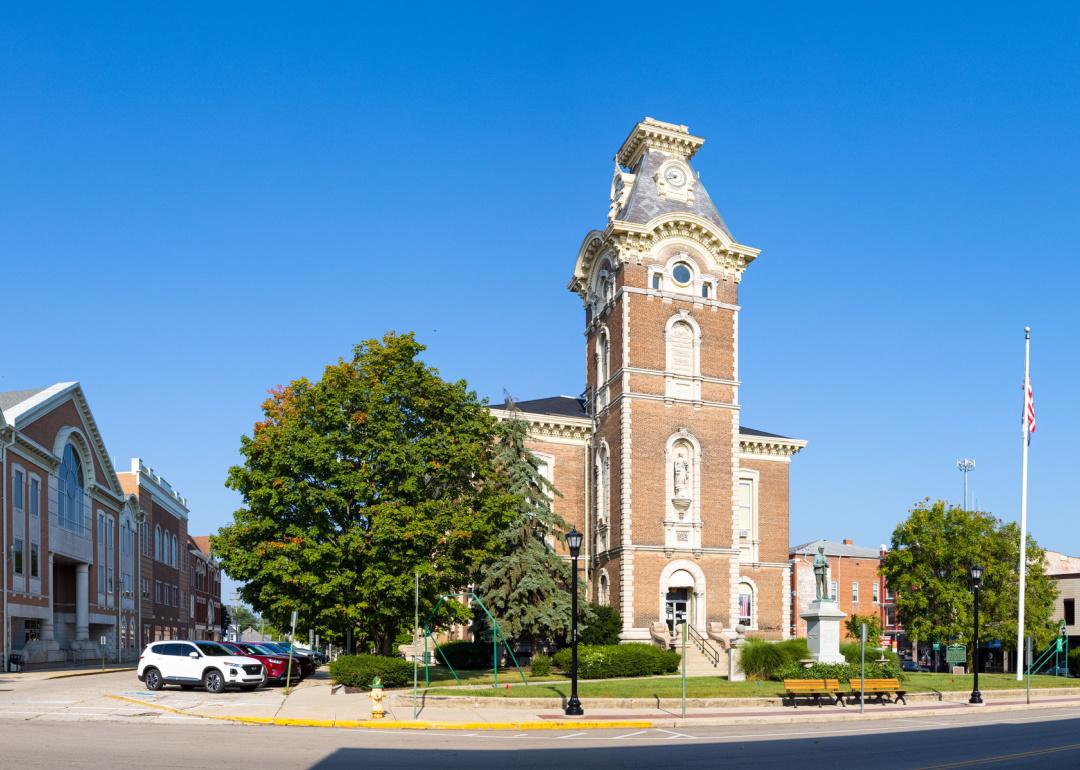
Roberto Galan // Shutterstock
#41. New Castle, Indiana
Henry County Courthouse.
– Total population: 18,114
– Share of adults who are depressed: 29.2%
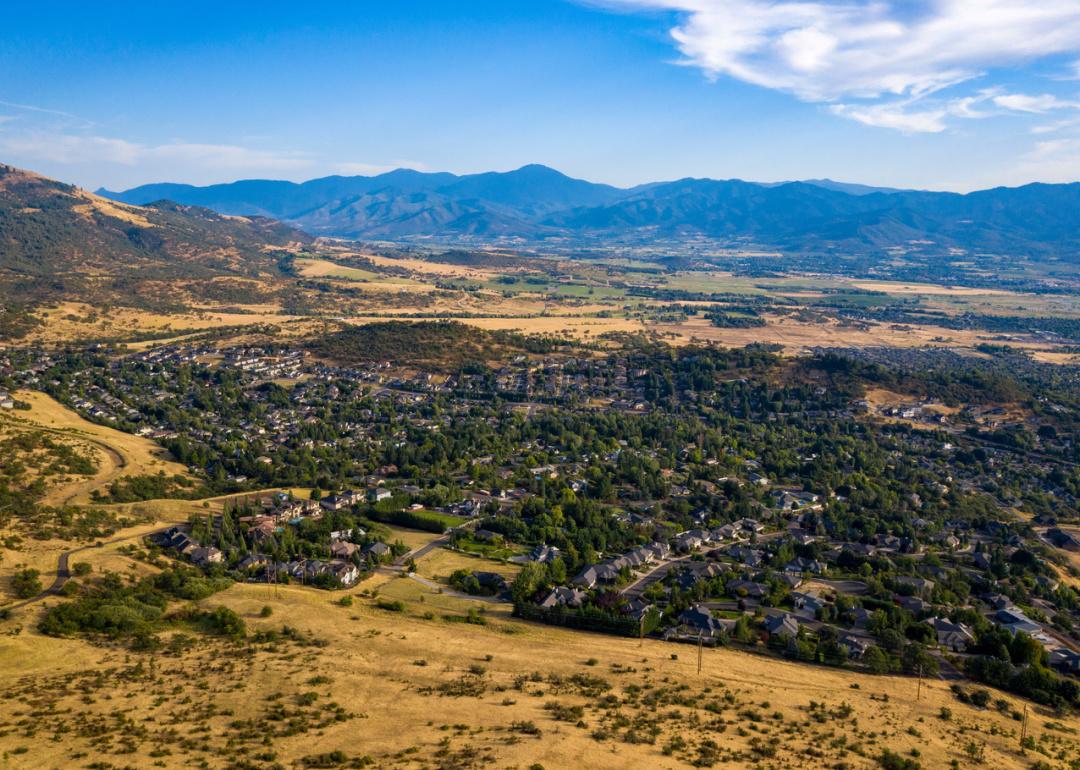
Ahturner // Shutterstock
#40. Medford, Oregon
Elevated view of Medford.
– Total population: 74,986
– Share of adults who are depressed: 29.2%
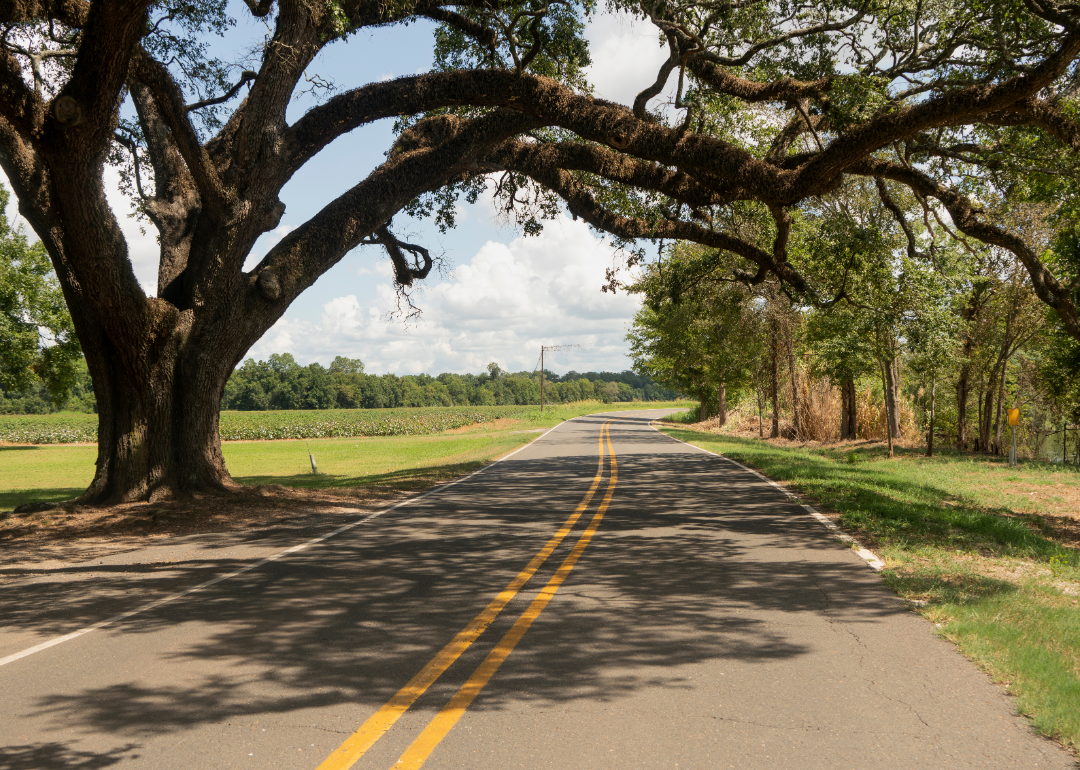
Canva
#39. Bayou Blue, Louisiana
Rural Road in Southern Louisiana.
– Total population: 12,352
– Share of adults who are depressed: 29.3%
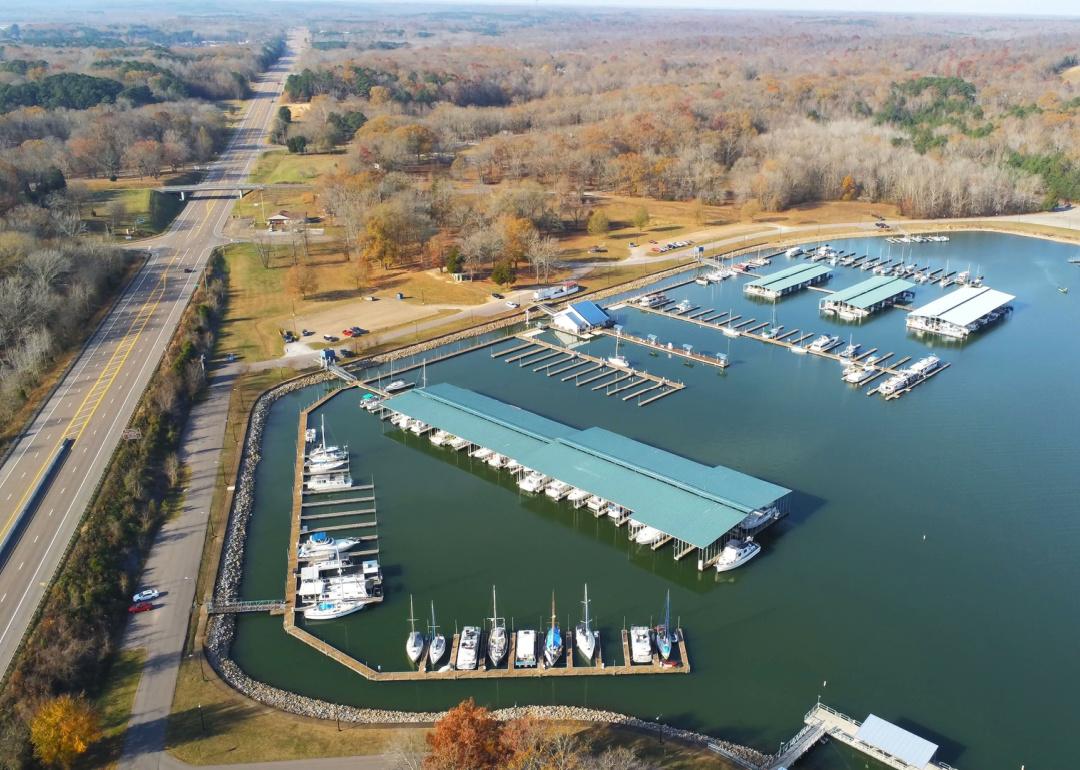
J. Leonard // Shutterstock
#38. Paris, Tennessee
Paris Landing Marina aerial view.
– Total population: 10,173
– Share of adults who are depressed: 29.4%
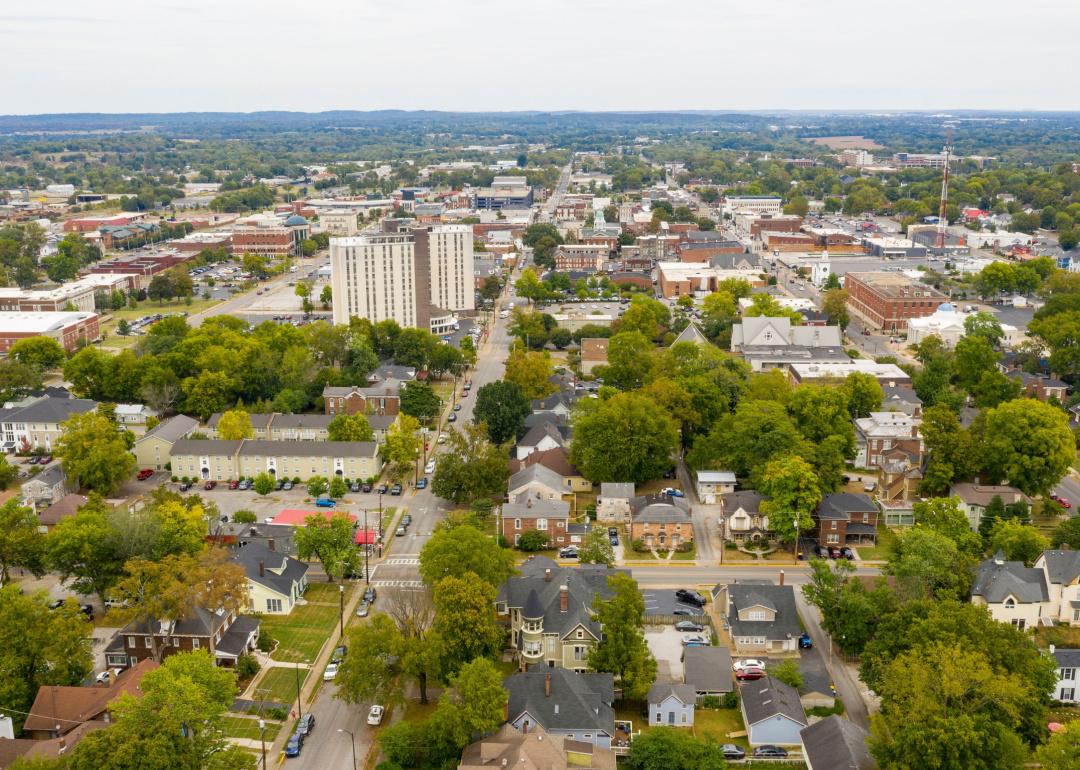
Real Window Creative // Shutterstock
#37. Glasgow, Kentucky
Aerial view Bowling Green.
– Total population: 14,137
– Share of adults who are depressed: 29.4%
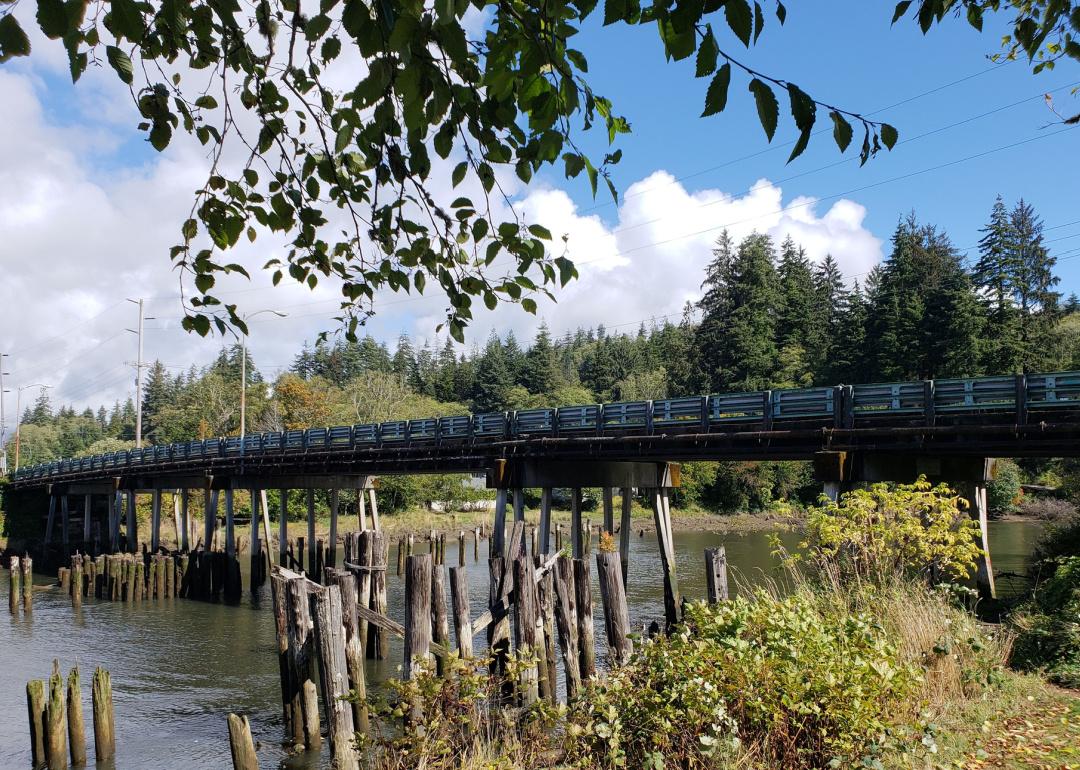
Me Wise Magic 5150 // Shutterstock
#36. Aberdeen, Washington
Wishkah River bridge in Aberdeen.
– Total population: 16,896
– Share of adults who are depressed: 29.4%
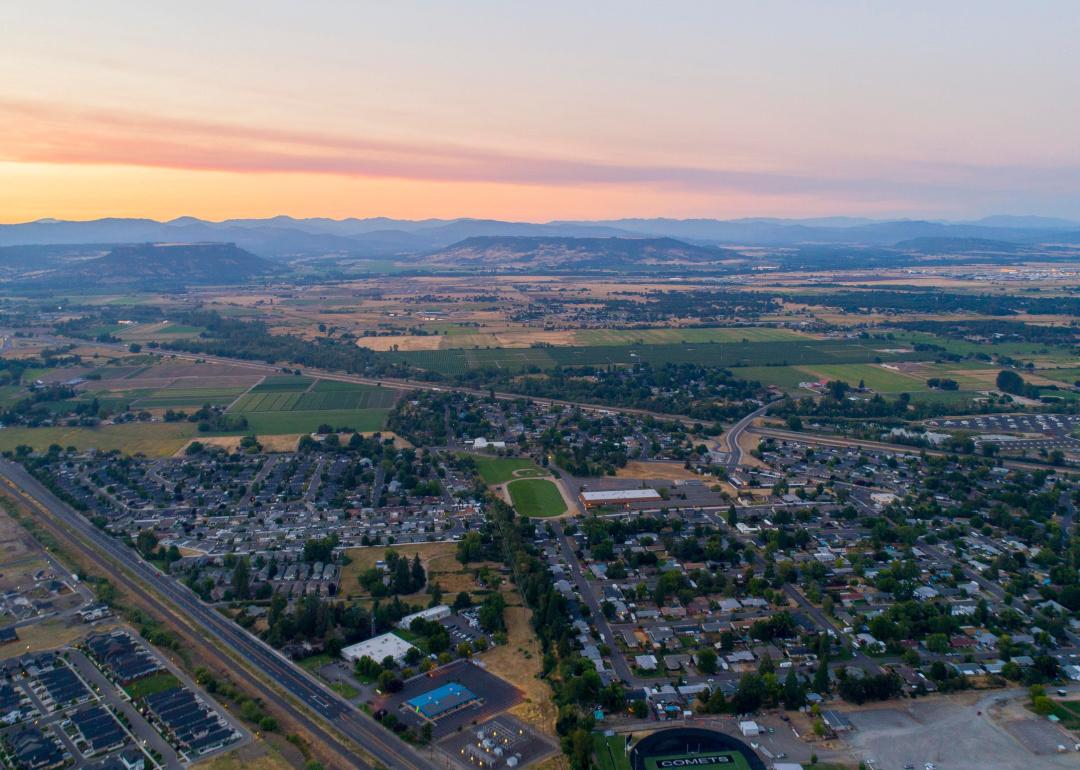
Nick Alexander Films // Shutterstock
#35. Central Point, Oregon
Sunset over Central Point.
– Total population: 17,200
– Share of adults who are depressed: 29.4%
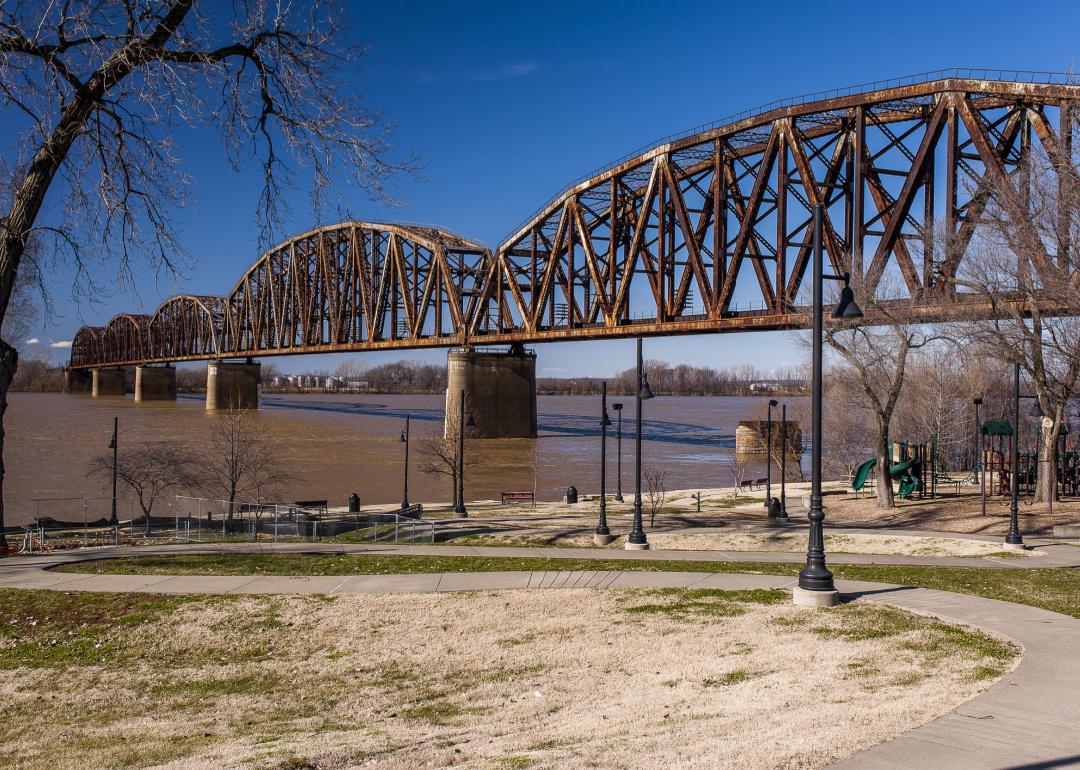
The American Explorer // Shutterstock
#34. Henderson, Kentucky
Truss bridge over Ohio River near Henderson.
– Total population: 28,857
– Share of adults who are depressed: 29.4%
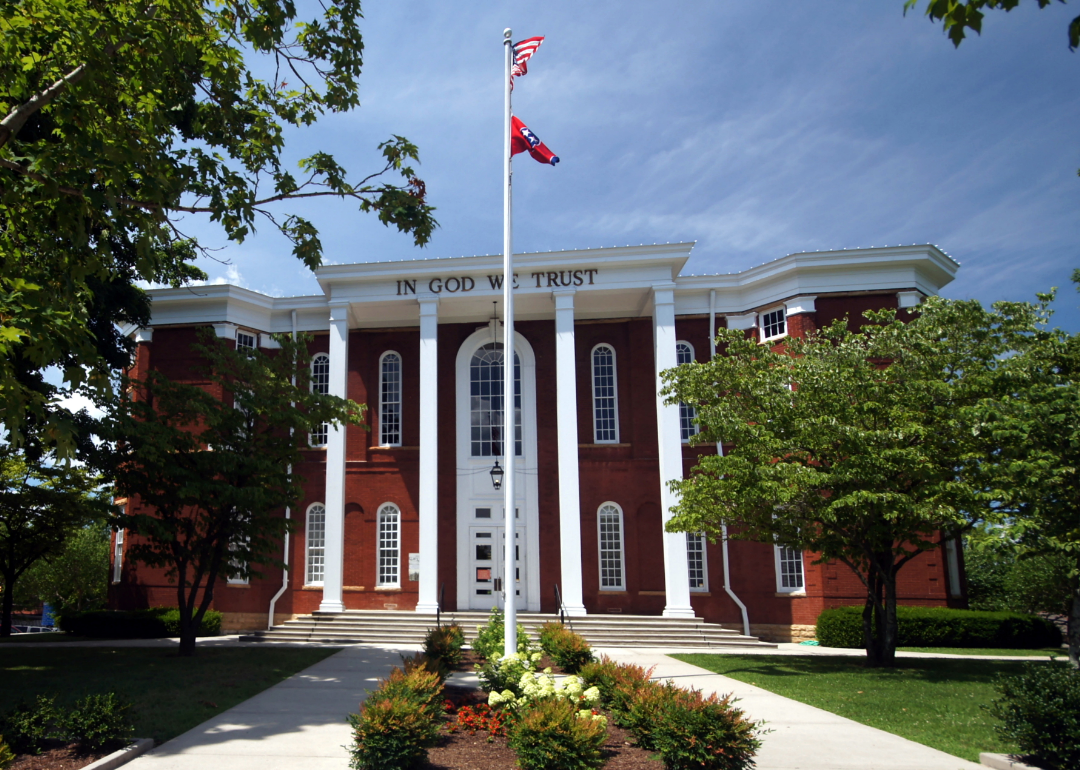
Canva
#33. Cookeville, Tennessee
Putnam County Courthouse.
– Total population: 30,981
– Share of adults who are depressed: 29.4%
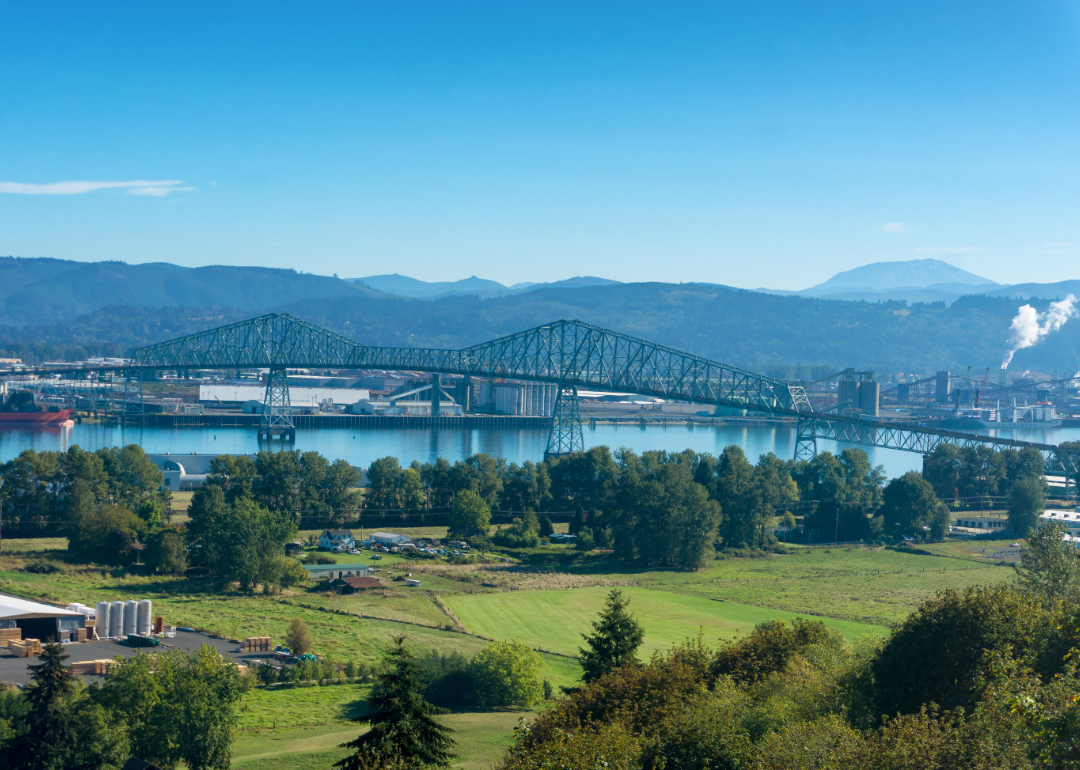
Canva
#32. Longview, Washington
Lewis and Clark Bridge over Columbia River.
– Total population: 36,867
– Share of adults who are depressed: 29.4%
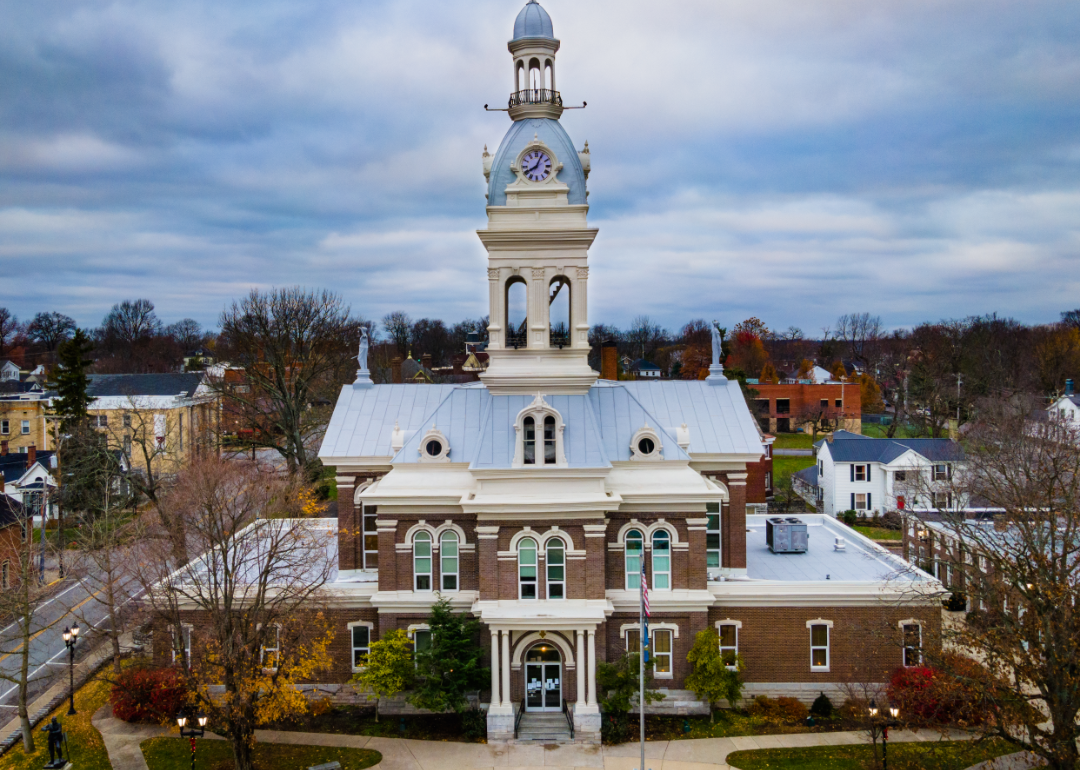
Canva
#31. Nicholasville, Kentucky
Jessamine County Courthouse in Nicholasville.
– Total population: 28,112
– Share of adults who are depressed: 29.5%
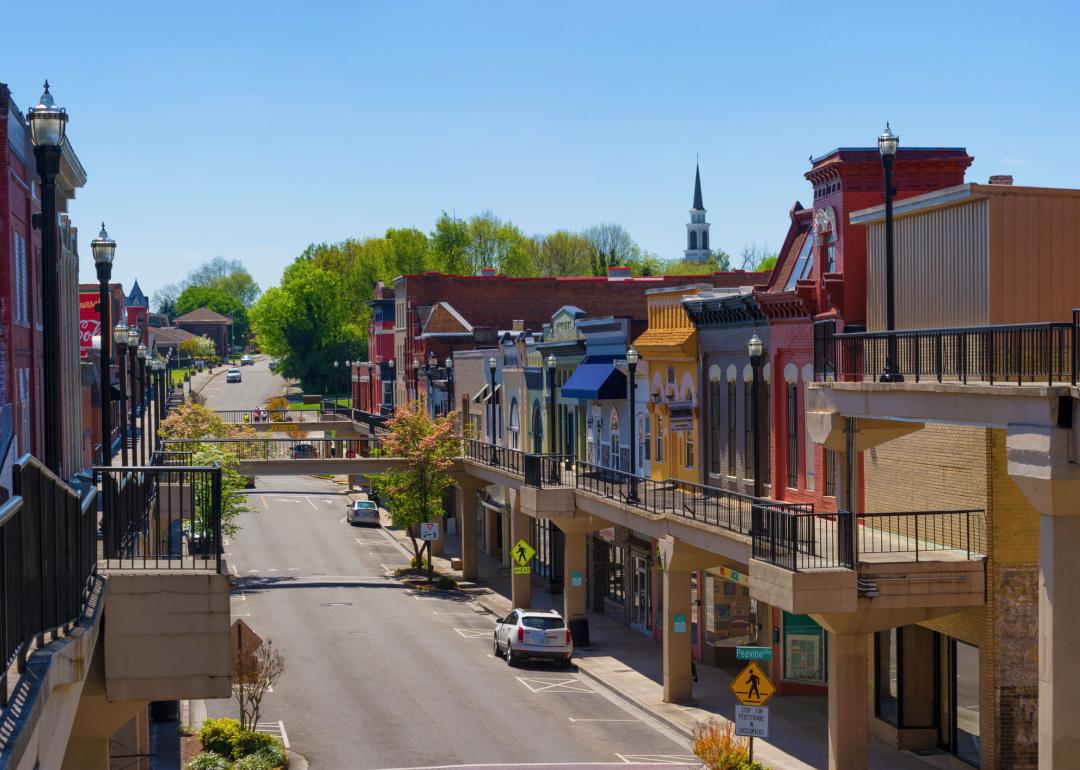
Dee Browning // Shutterstock
#30. Morristown, Tennessee
Historic district in Morristown.
– Total population: 29,192
– Share of adults who are depressed: 29.5%
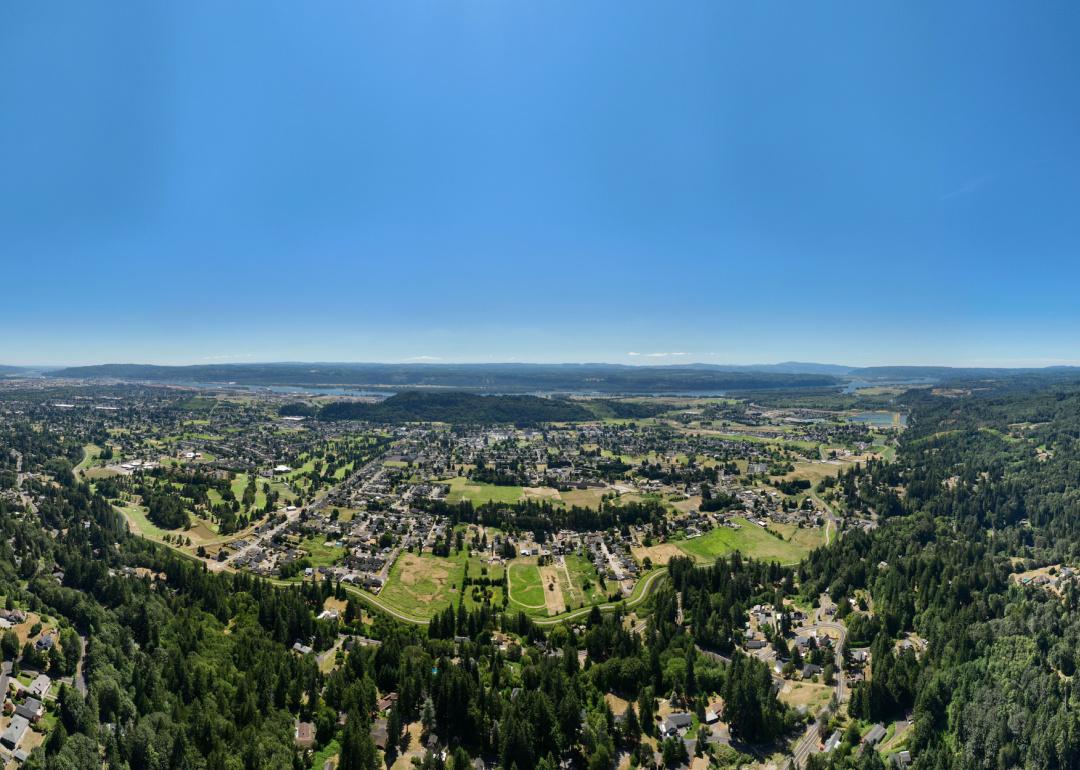
Wirestock Creators // Shutterstock
#29. Kelso, Washington
Longview and surrounding area.
– Total population: 11,917
– Share of adults who are depressed: 29.6%
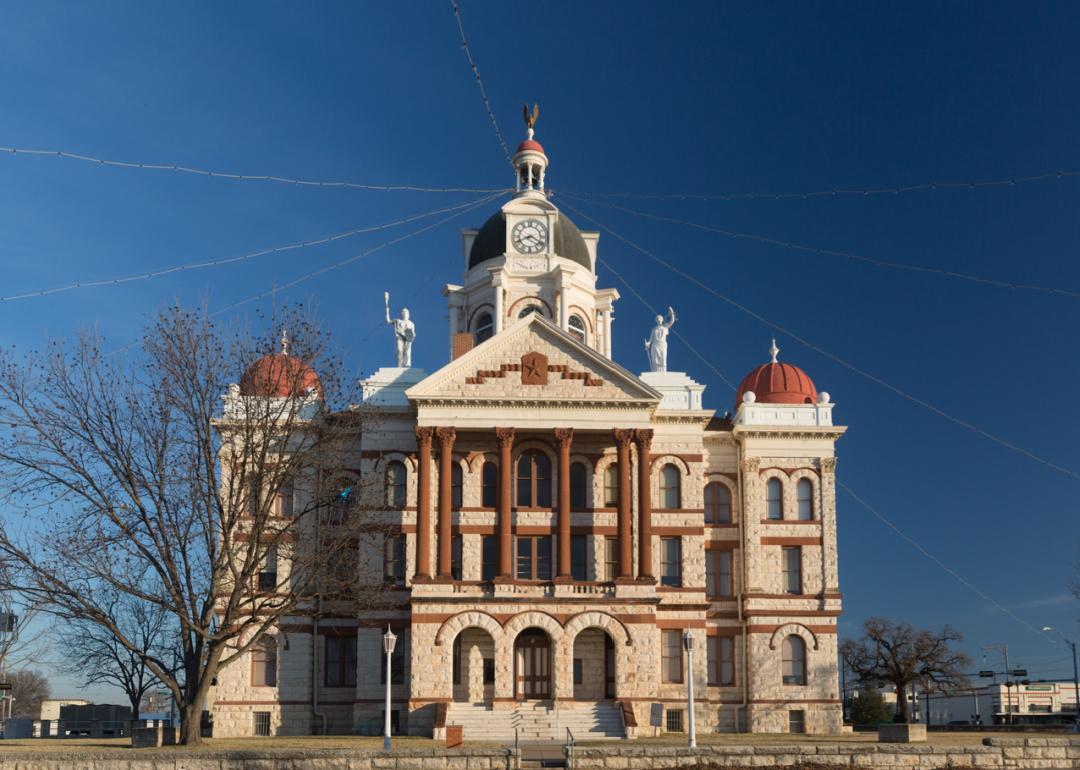
Steve Jordan // Shutterstock
#28. Gatesville, Texas
Coryell County courthouse in Gatesville.
– Total population: 12,672
– Share of adults who are depressed: 29.6%
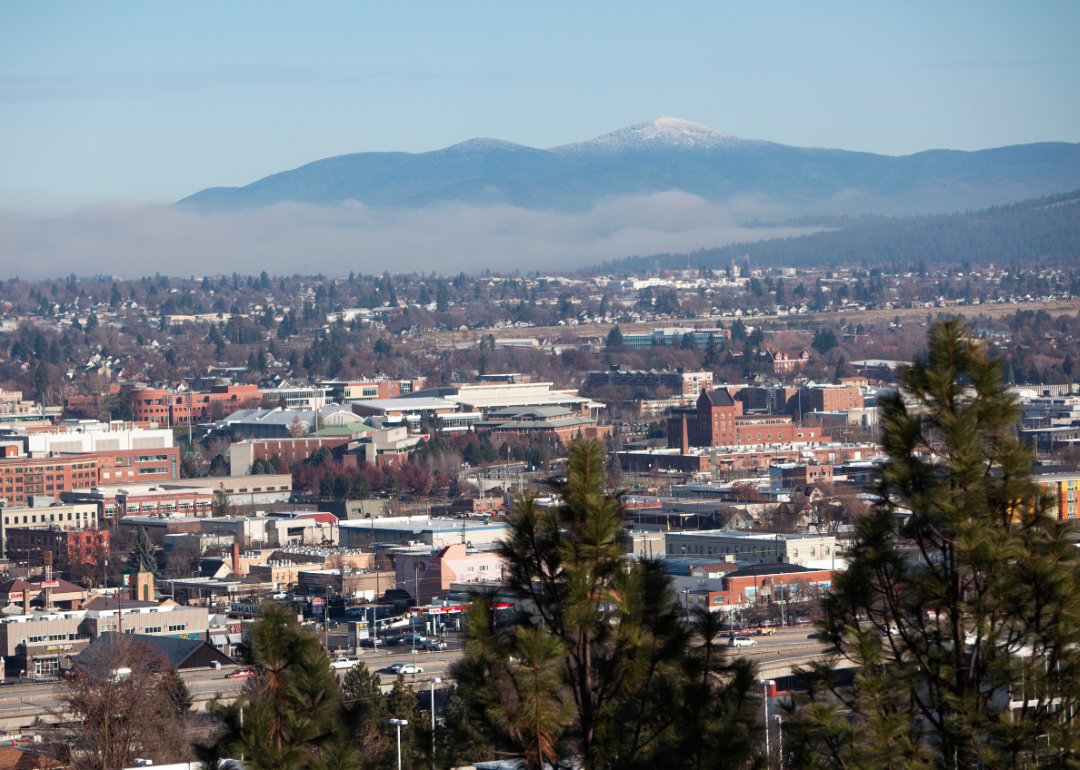
Canva
#27. Cheney, Washington
Aerial view Spokane County.
– Total population: 10,590
– Share of adults who are depressed: 29.7%
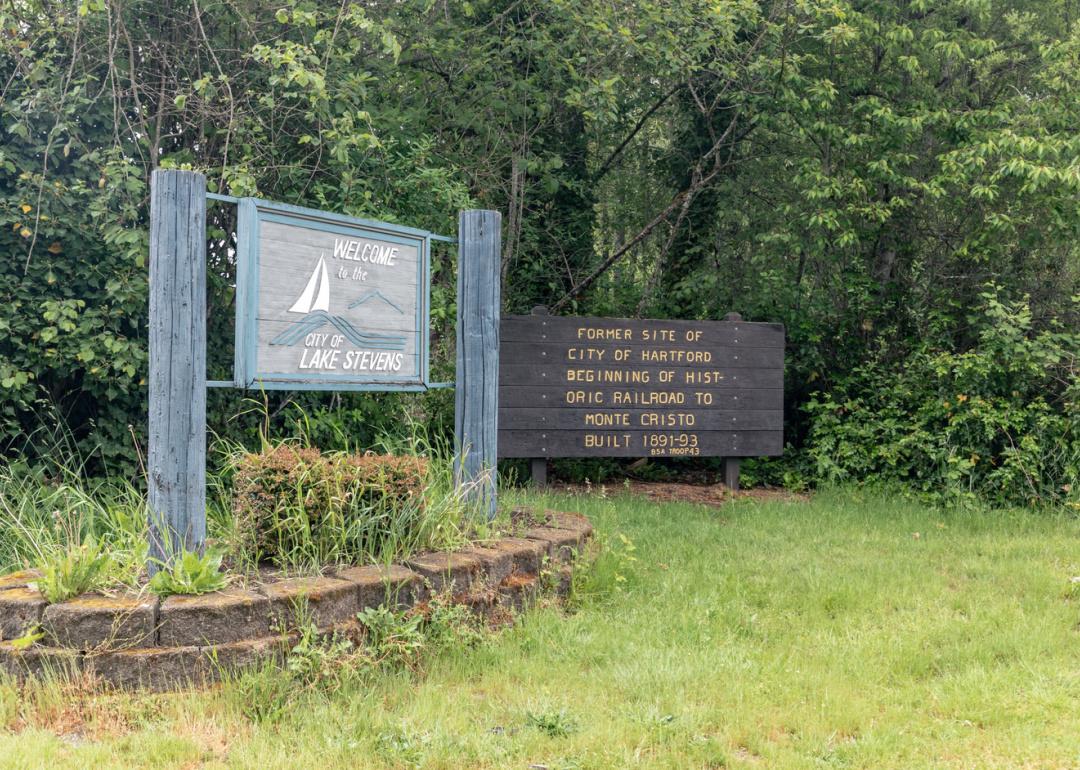
CL Shebley // Shutterstock
#26. Lake Stevens, Washington
Welcome to Lake Stevens city sign.
– Total population: 28,121
– Share of adults who are depressed: 29.7%
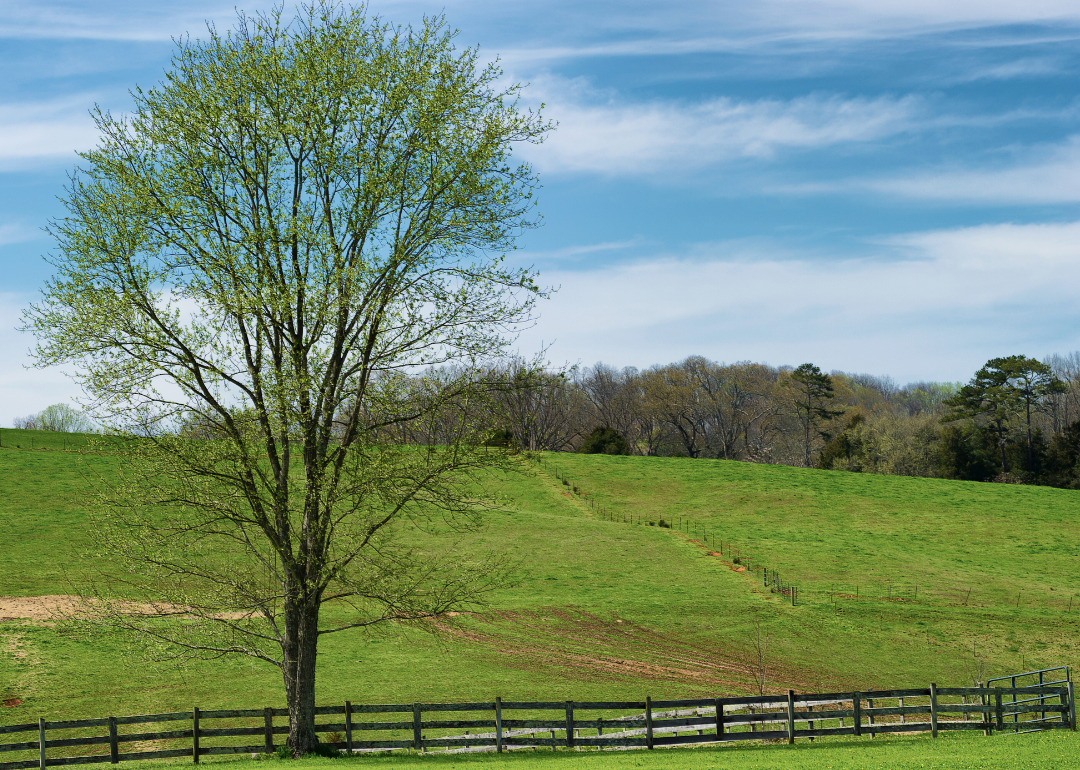
Canva
#25. Union City, Tennessee
Pasture in rural Tennessee.
– Total population: 10,898
– Share of adults who are depressed: 29.8%
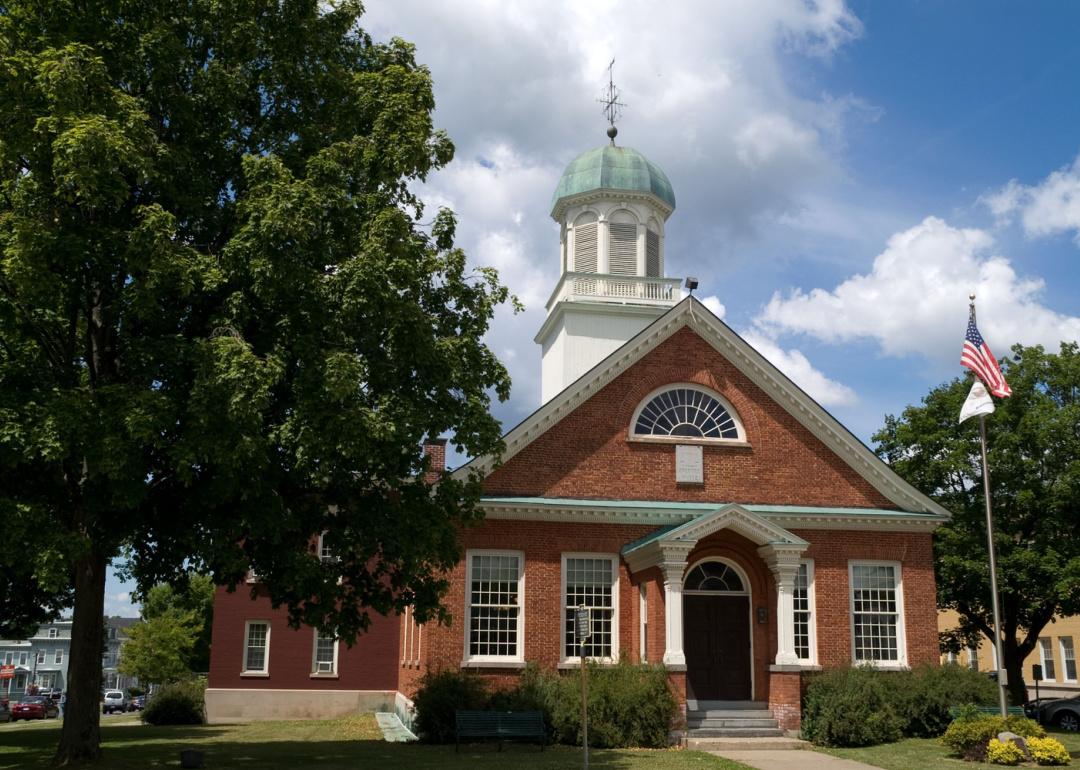
Sue Smith // Shutterstock
#24. Gloversville, New York
Exterior view Fulton County Court House.
– Total population: 15,681
– Share of adults who are depressed: 29.8%
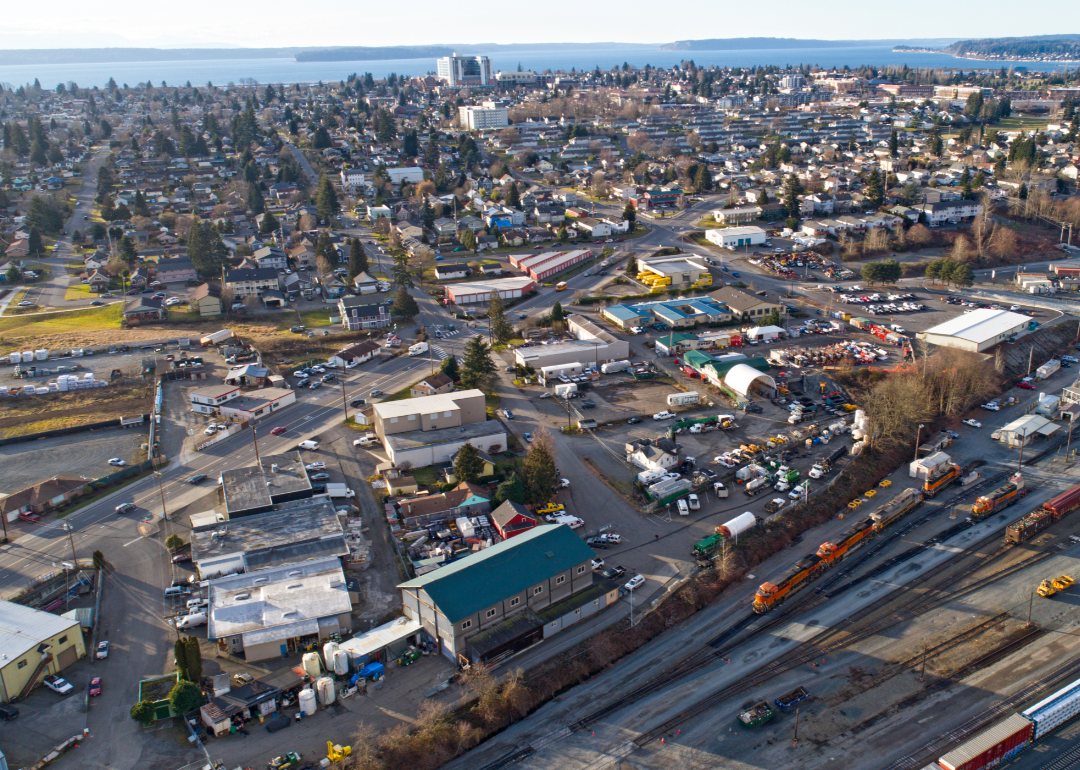
Canva
#23. Everett, Washington
Everett aerial view.
– Total population: 103,019
– Share of adults who are depressed: 29.8%

2Kahns Photo Arts // Shutterstock
#22. Crossville, Tennessee
Stone bridge in Cumberland Mountain State Park.
– Total population: 11,077
– Share of adults who are depressed: 29.9%
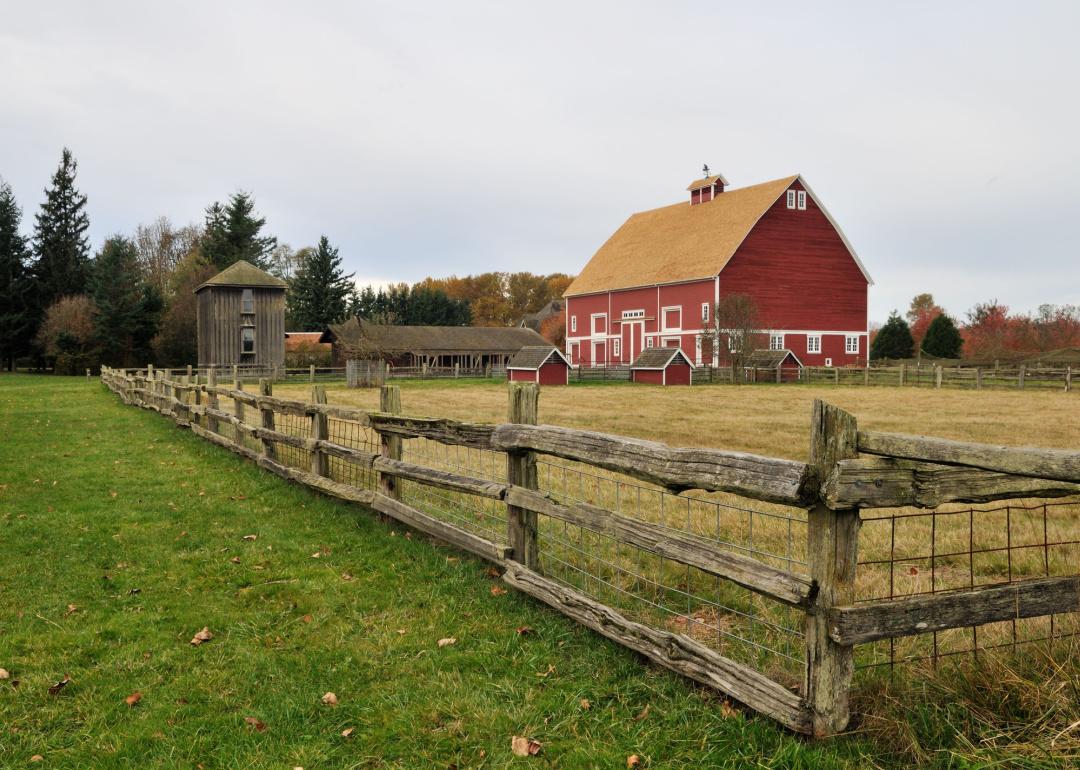
Lijuan Guo // Shutterstock
#21. Ferndale, Washington
Hovander Homestead Park in Ferndale.
– Total population: 11,437
– Share of adults who are depressed: 29.9%
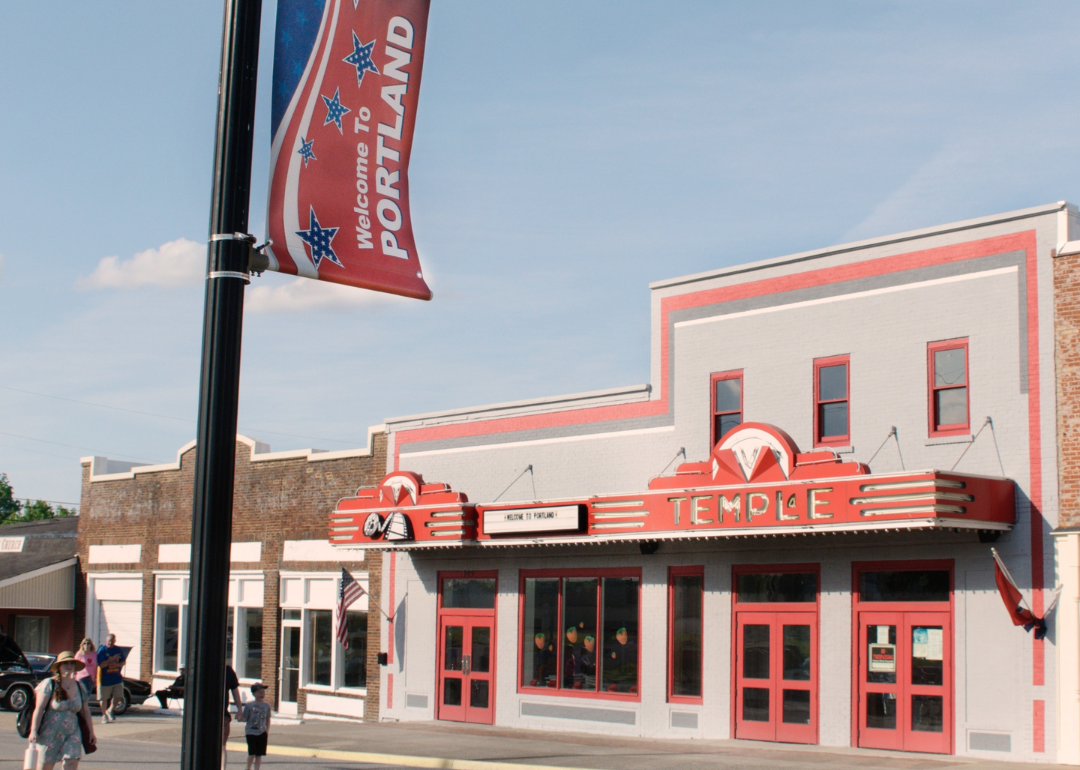
Carla Sloke // Shutterstock
#20. Portland, Tennessee
Portland town center.
– Total population: 11,502
– Share of adults who are depressed: 29.9%
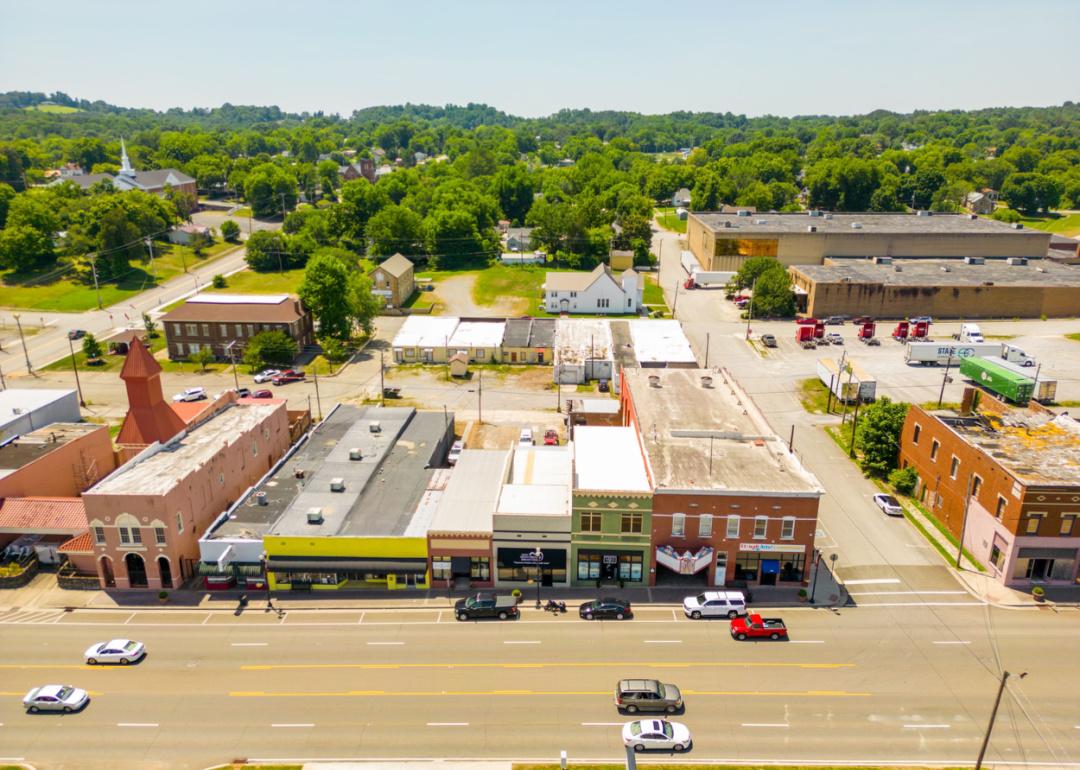
Felix Mizioznikov // Shutterstock
#19. Athens, Tennessee
Aerial view of Etowah.
– Total population: 13,538
– Share of adults who are depressed: 29.9%

Stony River // Shutterstock
#18. Huntington, West Virginia
Riverfront park in Huntington.
– Total population: 49,138
– Share of adults who are depressed: 29.9%
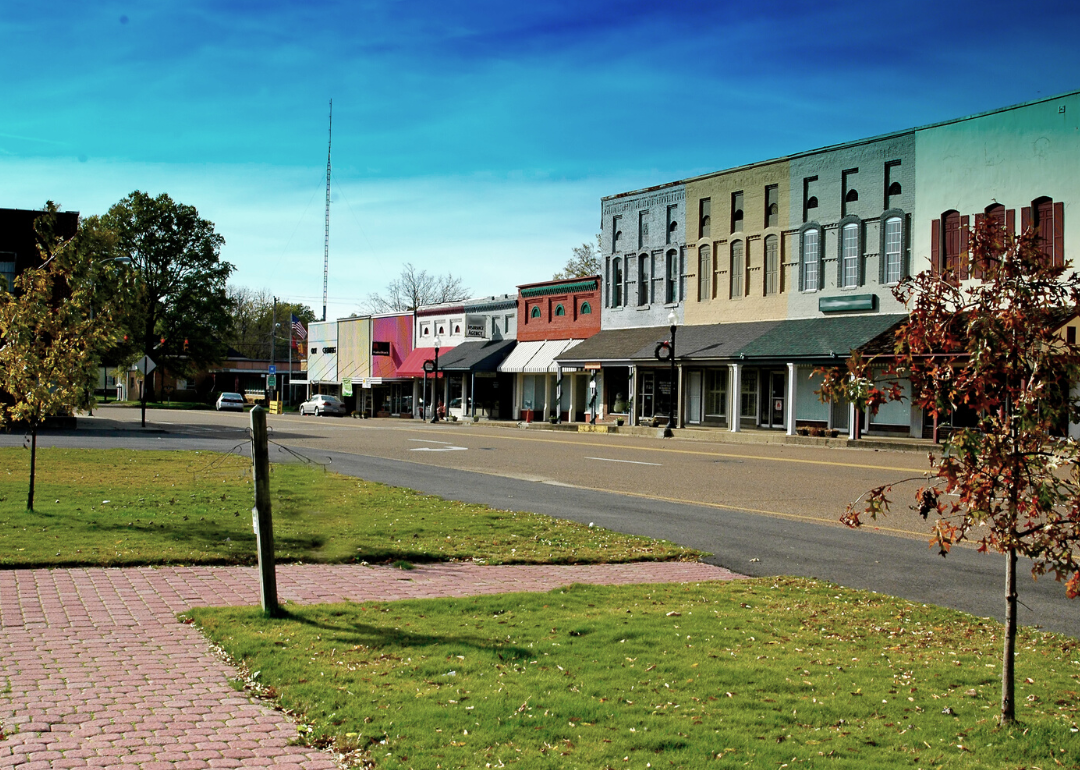
Adrian T Jones // Shutterstock
#17. Martin, Tennessee
Downtown Martin.
– Total population: 11,461
– Share of adults who are depressed: 30.0%
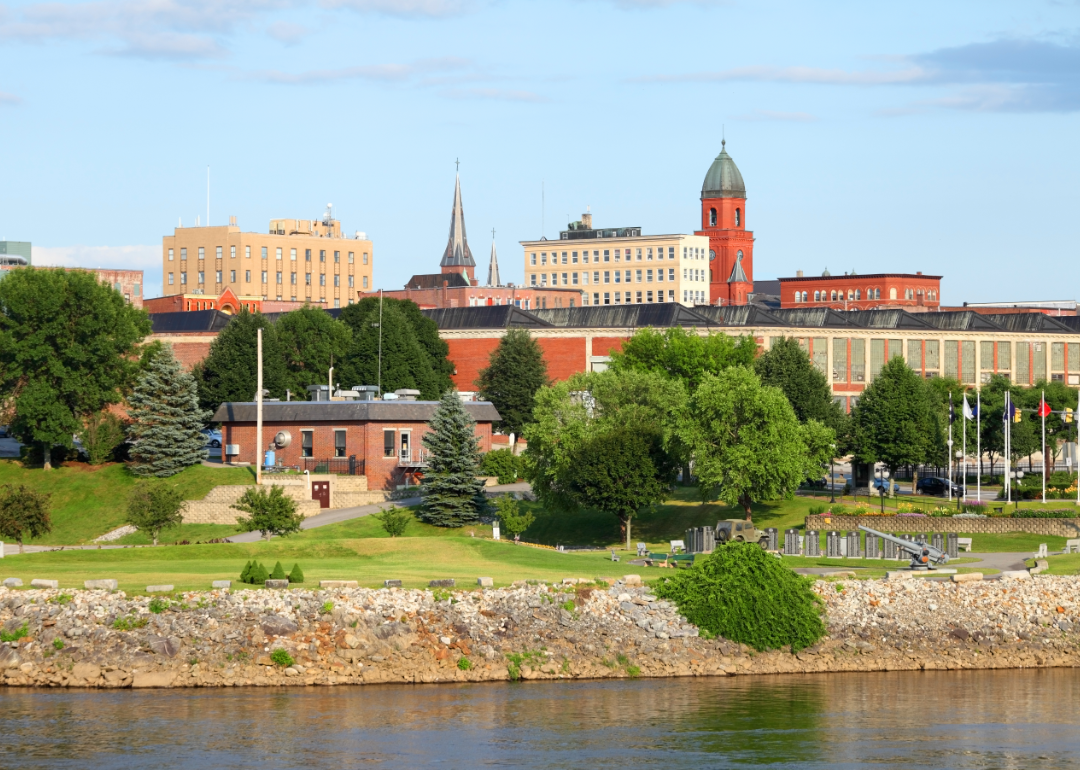
Canva
#16. Lewiston, Maine
Waterfront in Lewiston.
– Total population: 36,592
– Share of adults who are depressed: 30.0%
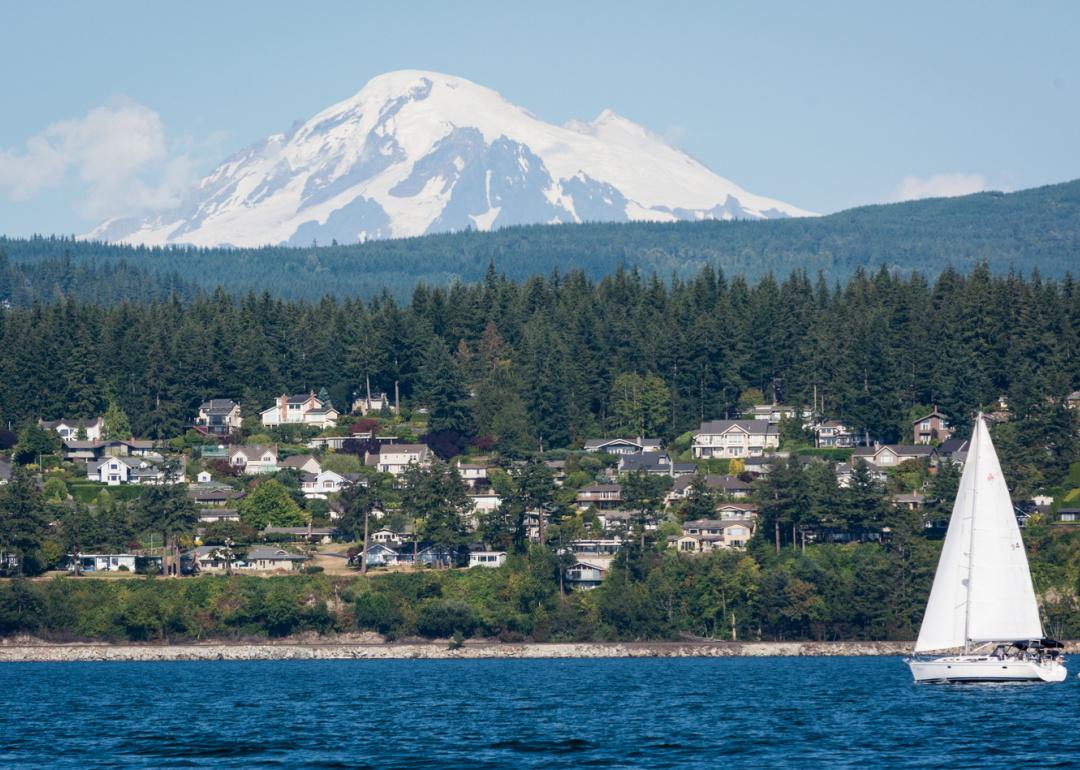
Chris Allan // Shutterstock
#15. Bellingham, Washington
Waterfront houses in Bellingham.
– Total population: 81,279
– Share of adults who are depressed: 30.0%
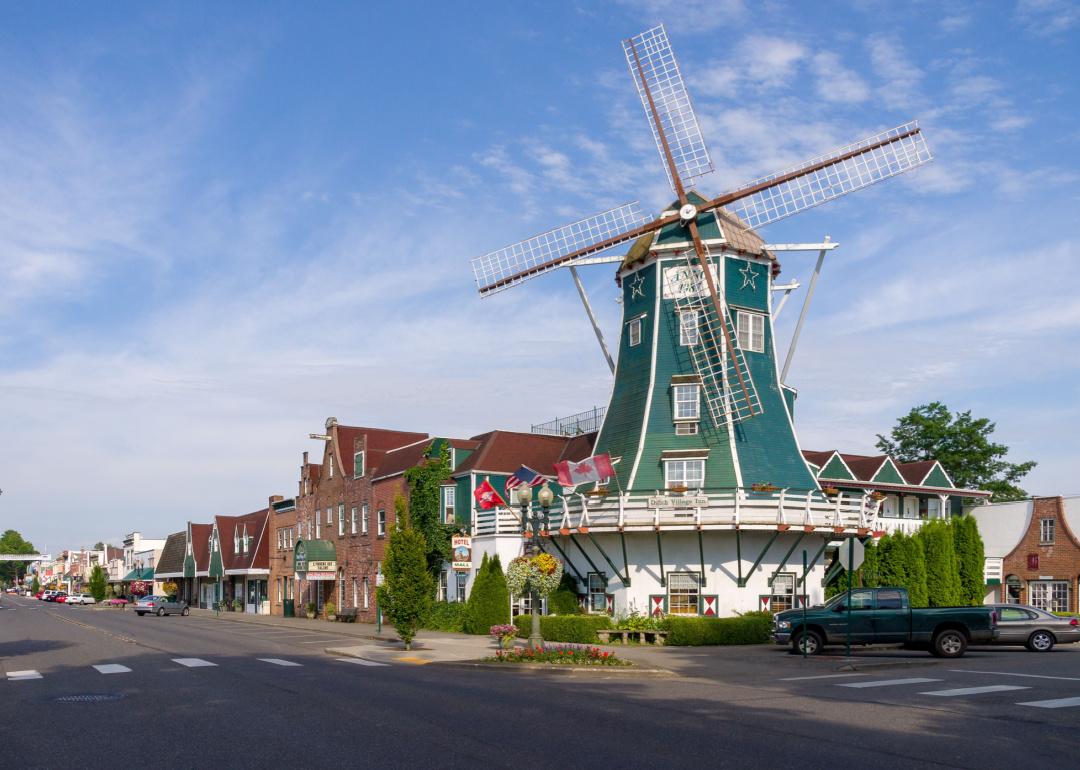
Laurens Hoddenbagh // Shutterstock
#14. Lynden, Washington
Dutch Mill in the Dutch city of Lynden.
– Total population: 12,023
– Share of adults who are depressed: 30.1%
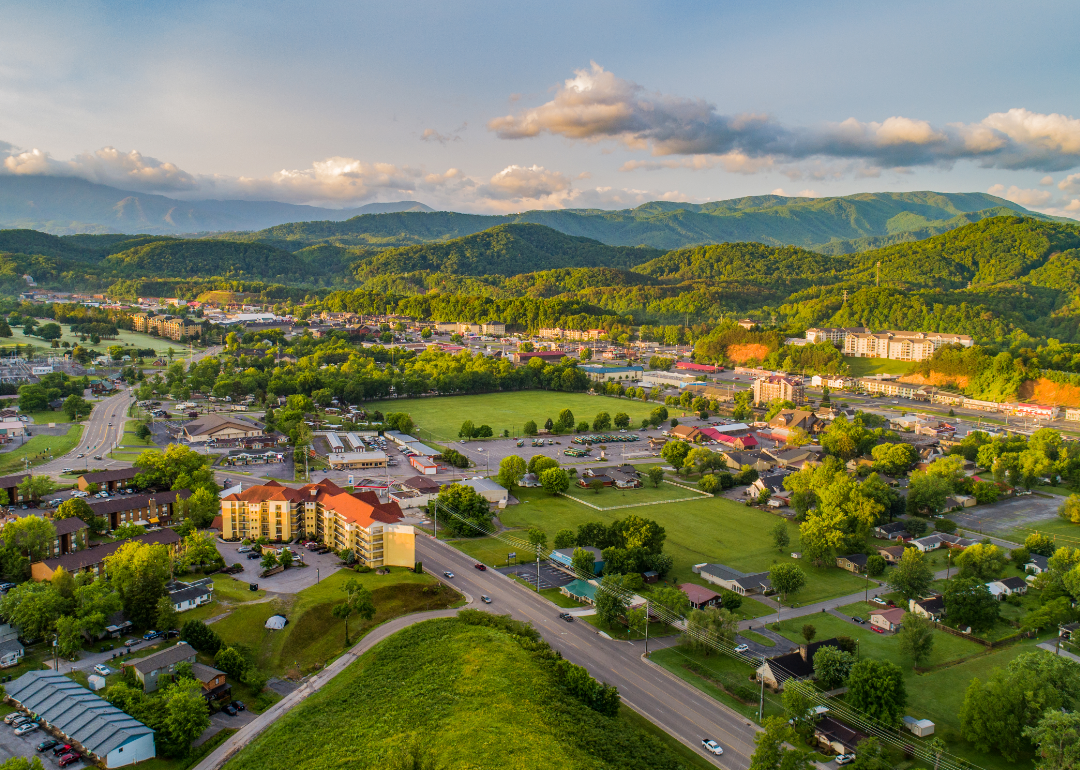
Canva
#13. Sevierville, Tennessee
Pigeon Forge and Sevierville.
– Total population: 14,835
– Share of adults who are depressed: 30.2%
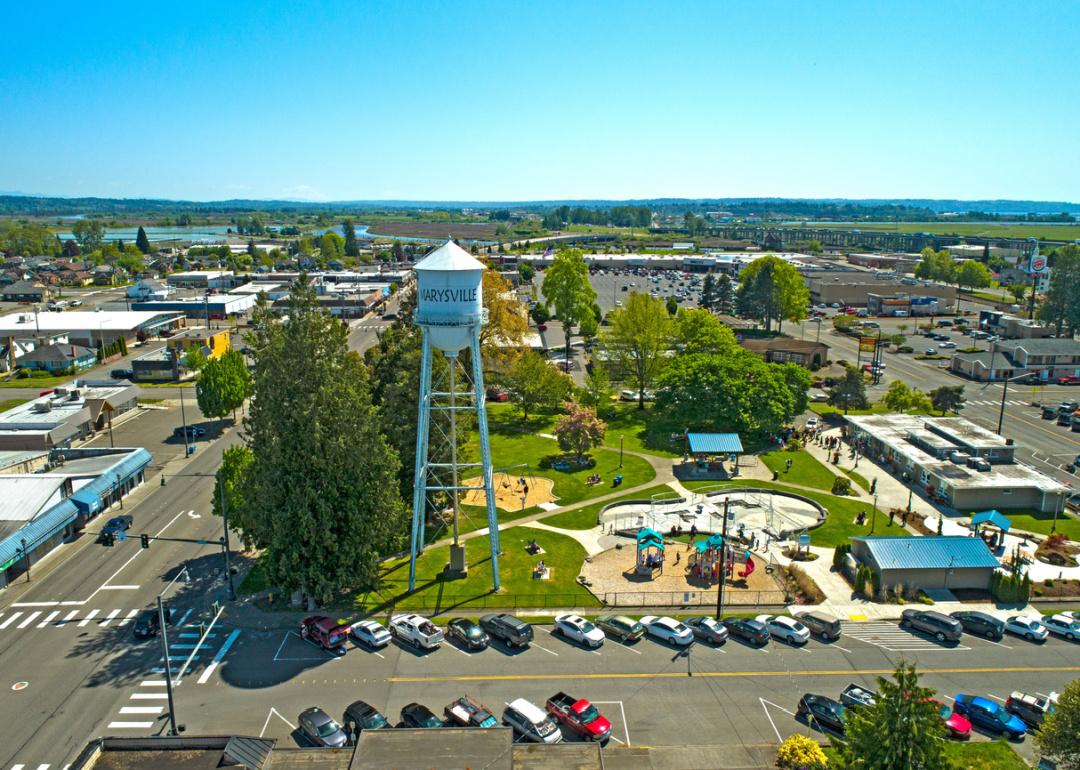
Cascade Creatives // Shutterstock
#12. Marysville, Washington
Water Tower and Comeford Park in Marysville.
– Total population: 60,017
– Share of adults who are depressed: 30.4%
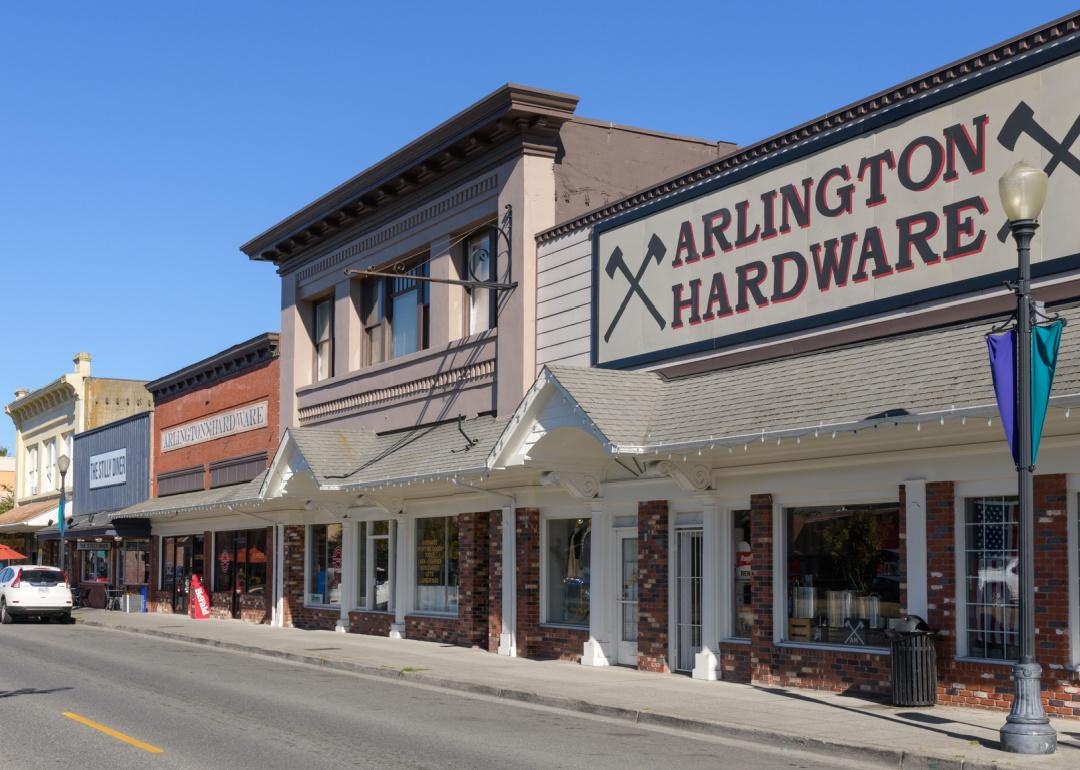
Ian Dewar Photography // Shutterstock
#11. Arlington, Washington
North Olympic Avenue in Arlington.
– Total population: 17,836
– Share of adults who are depressed: 30.6%
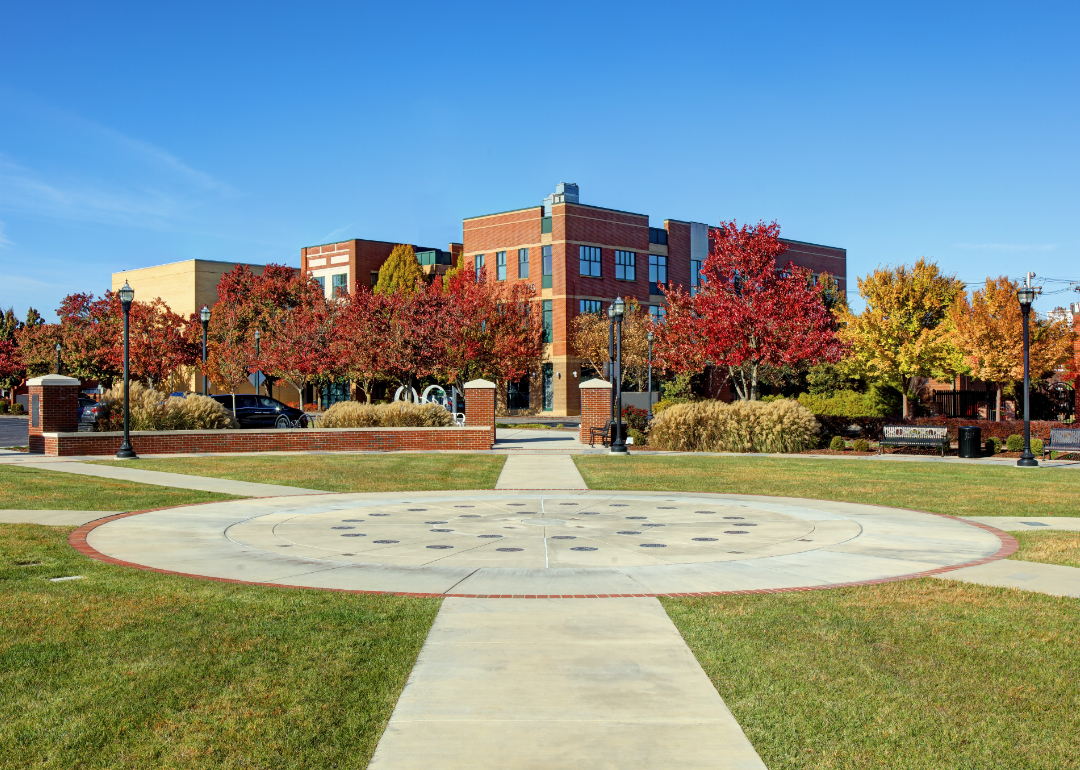
Canva
#10. Kingsport, Tennessee
Park in Kingsport.
– Total population: 52,487
– Share of adults who are depressed: 30.7%
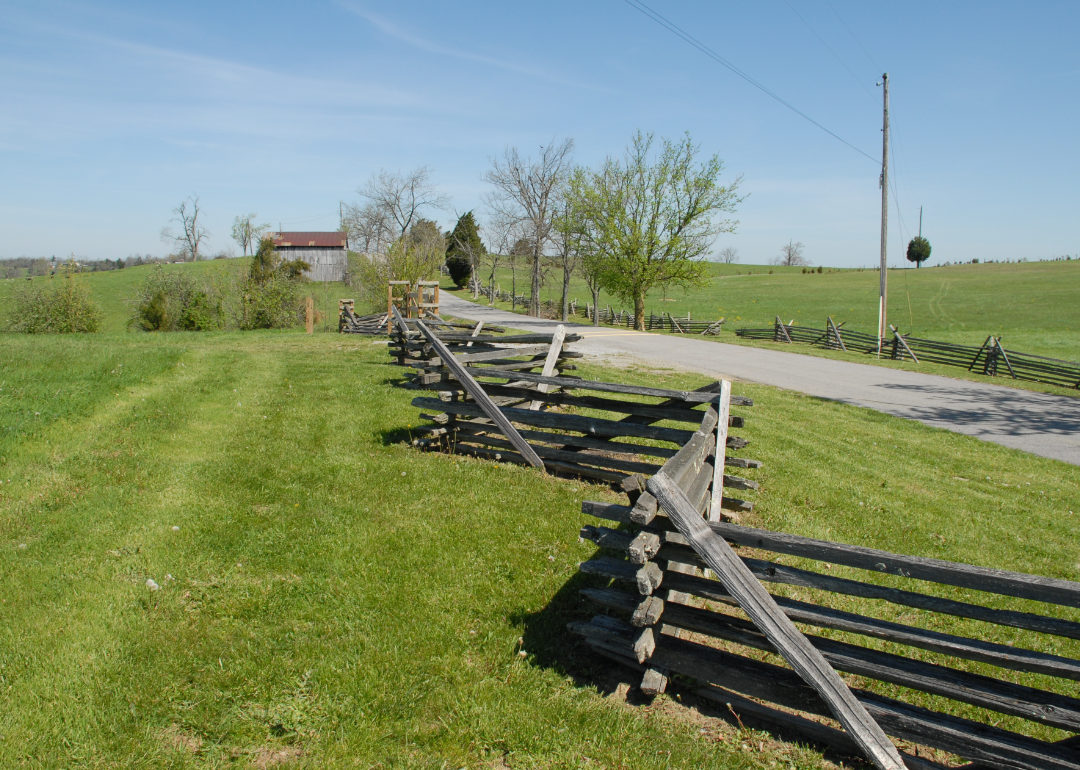
Canva
#9. Lawrenceburg, Tennessee
Rural country road.
– Total population: 10,428
– Share of adults who are depressed: 30.8%
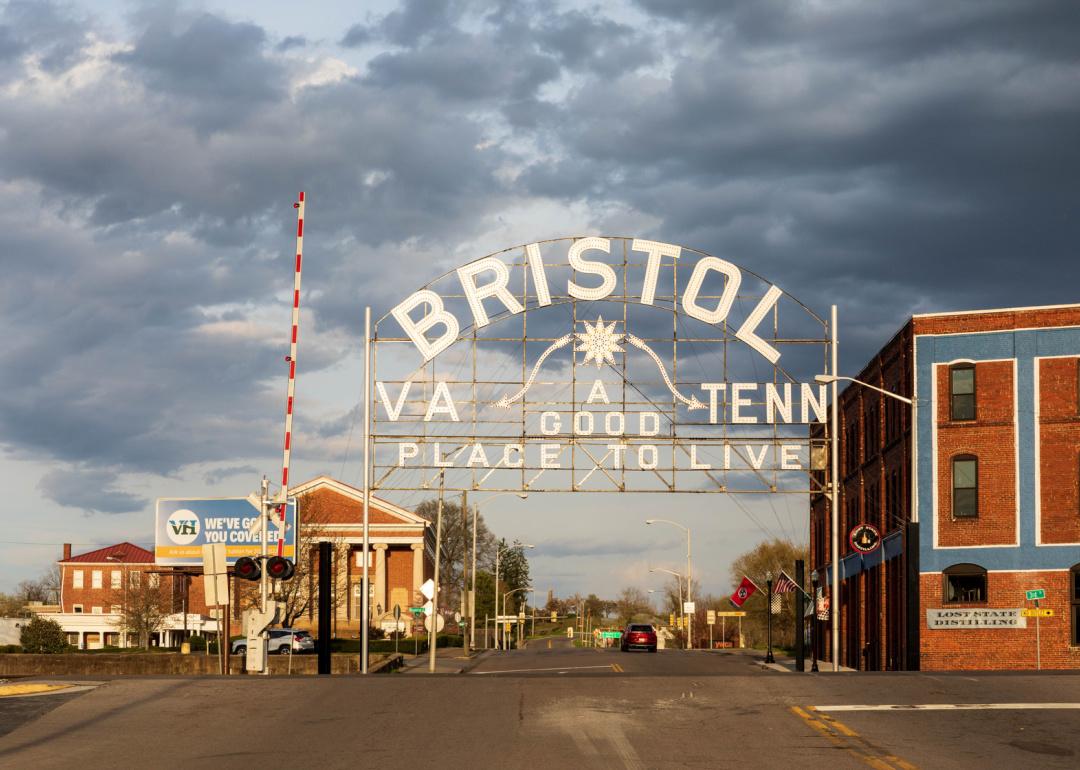
Nolichuckyjake // Shutterstock
#8. Bristol, Tennessee
The Bristol VA-TN sign over State Street.
– Total population: 26,714
– Share of adults who are depressed: 31.0%
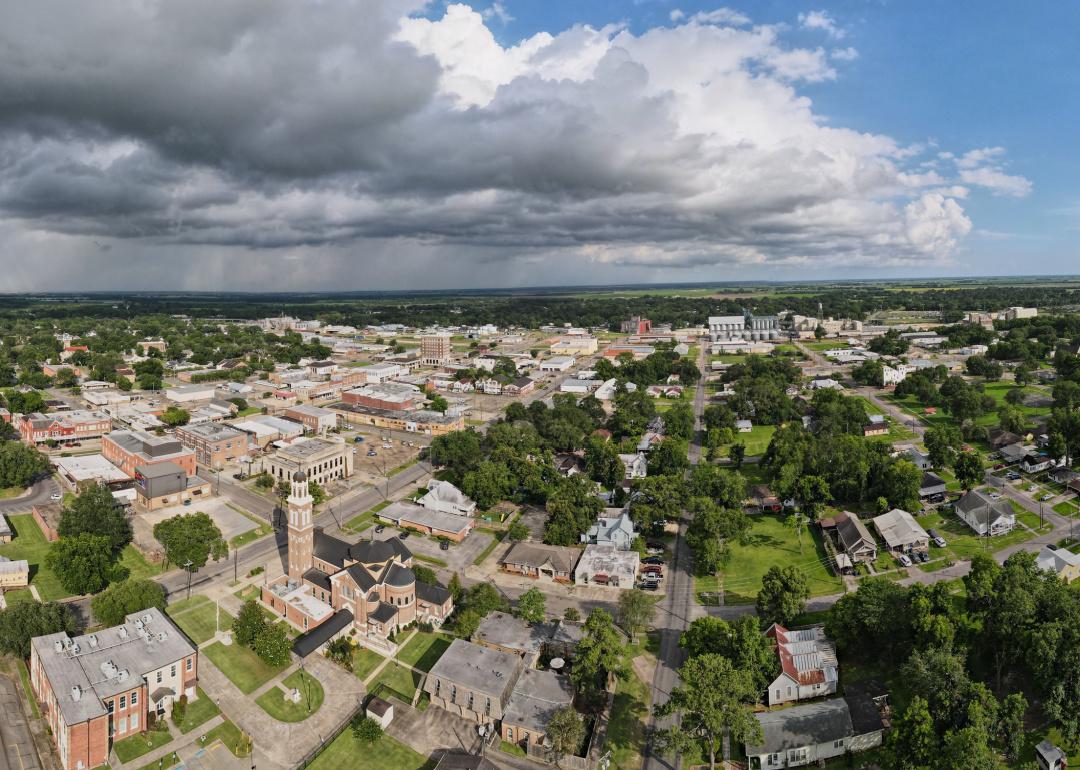
The GoProDad // Shutterstock
#7. Crowley, Louisiana
Aerial view Crowley.
– Total population: 13,265
– Share of adults who are depressed: 31.3%
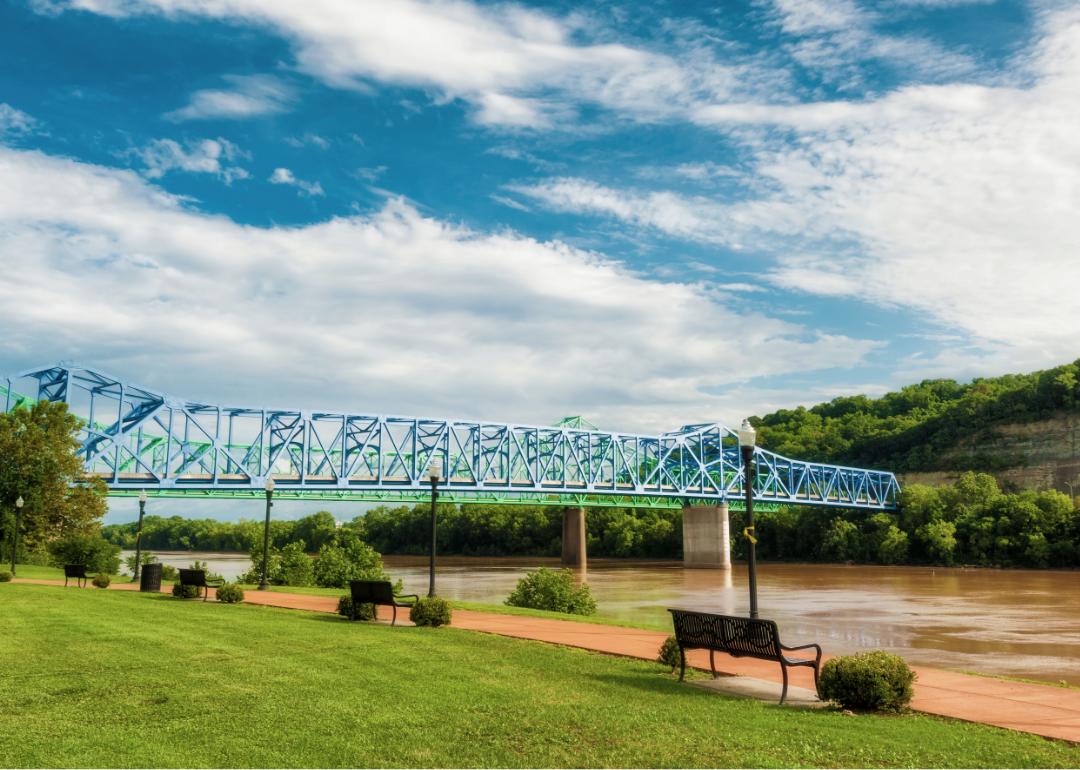
Canva
#6. Ashland, Kentucky
Ashland waterfront along the Ohio River.
– Total population: 21,684
– Share of adults who are depressed: 31.3%
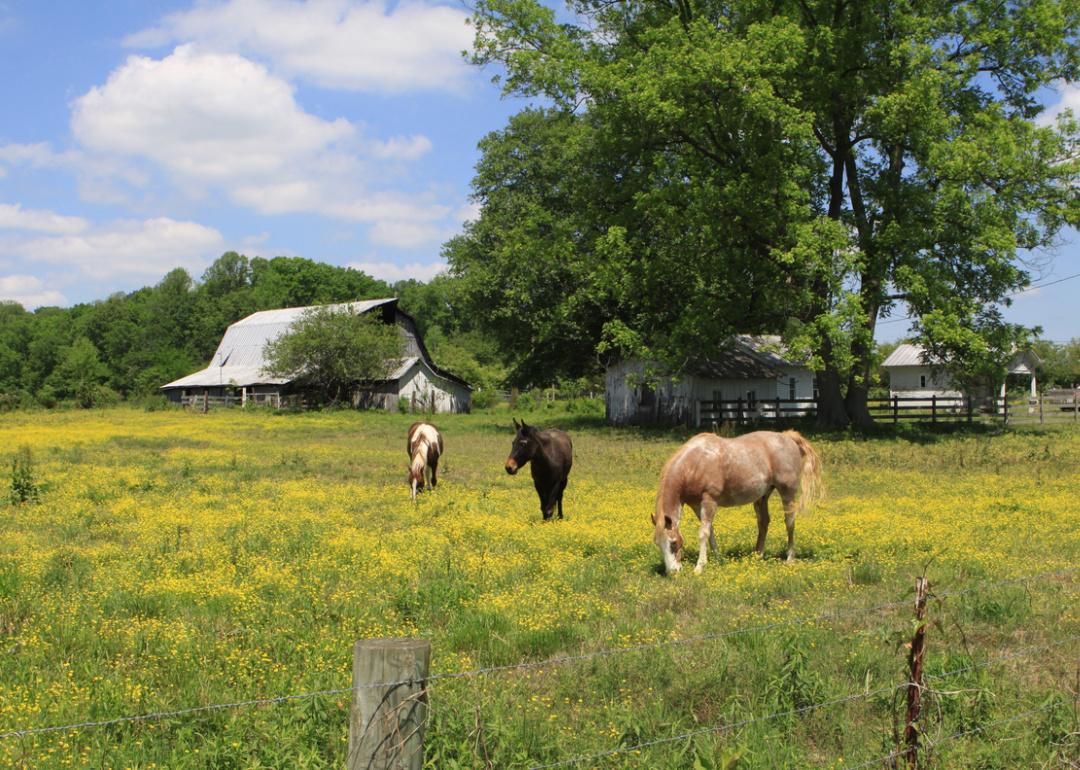
KennStilger47 // Shutterstock
#5. McMinnville, Tennessee
Rural barn and pasture.
– Total population: 13,605
– Share of adults who are depressed: 31.5%
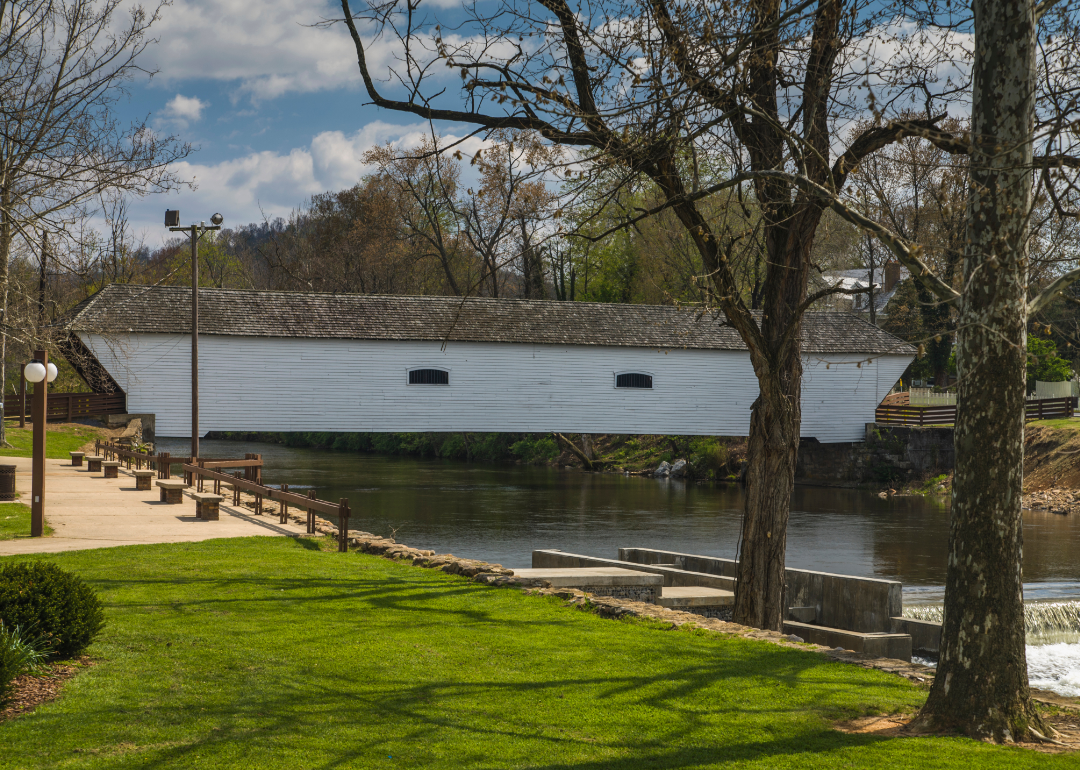
Canva
#4. Elizabethton, Tennessee
Covered bridge in Elizabethton.
– Total population: 14,193
– Share of adults who are depressed: 31.5%
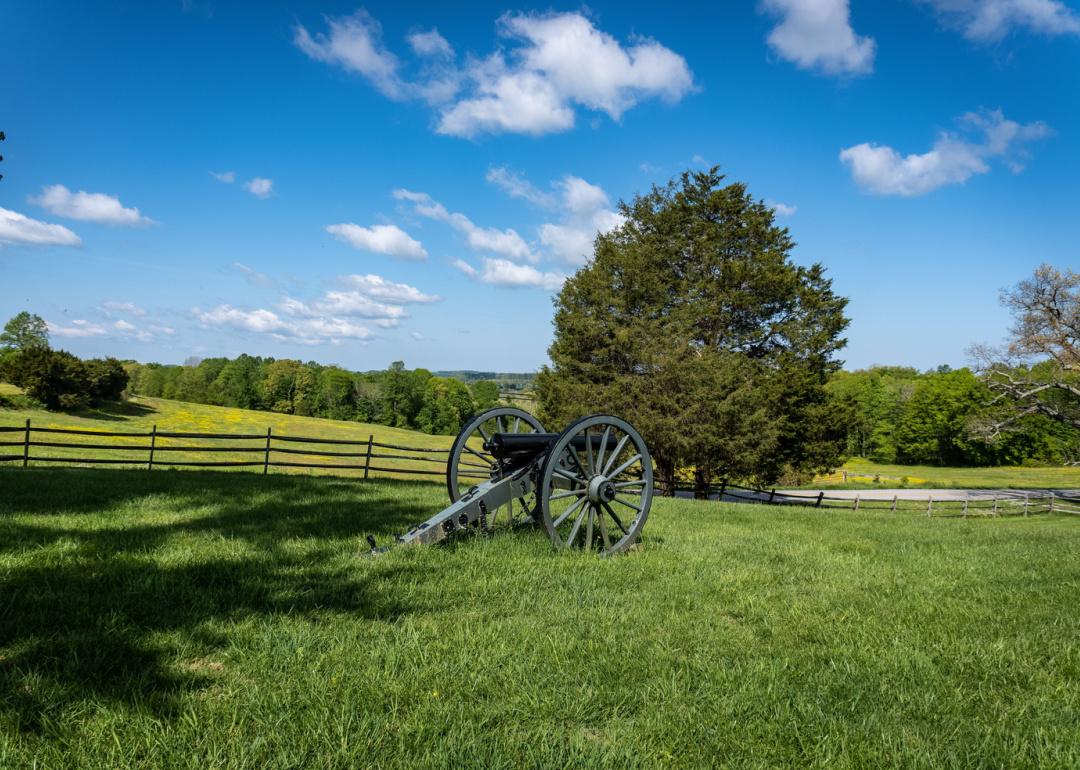
EWY Media // Shutterstock
#3. Somerset, Kentucky
Mill Springs Battlefield National Monument.
– Total population: 11,225
– Share of adults who are depressed: 31.6%
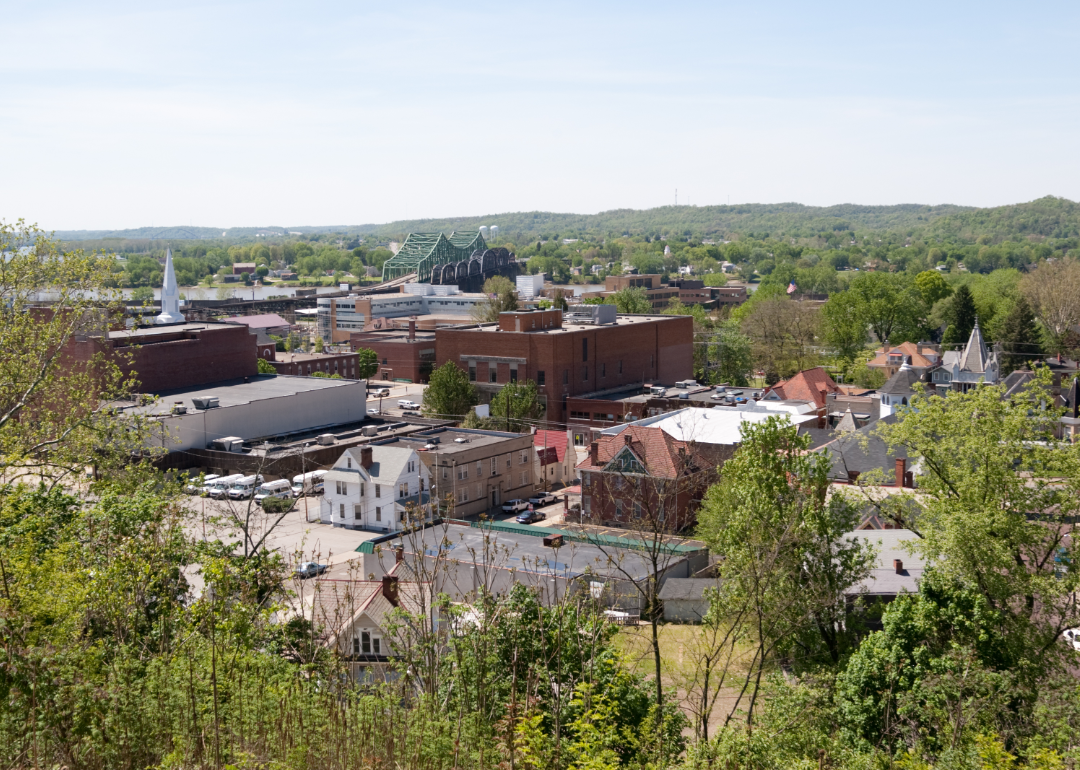
Canva
#2. Parkersburg, West Virginia
Elevated view of Parkersburg.
– Total population: 31,497
– Share of adults who are depressed: 31.7%
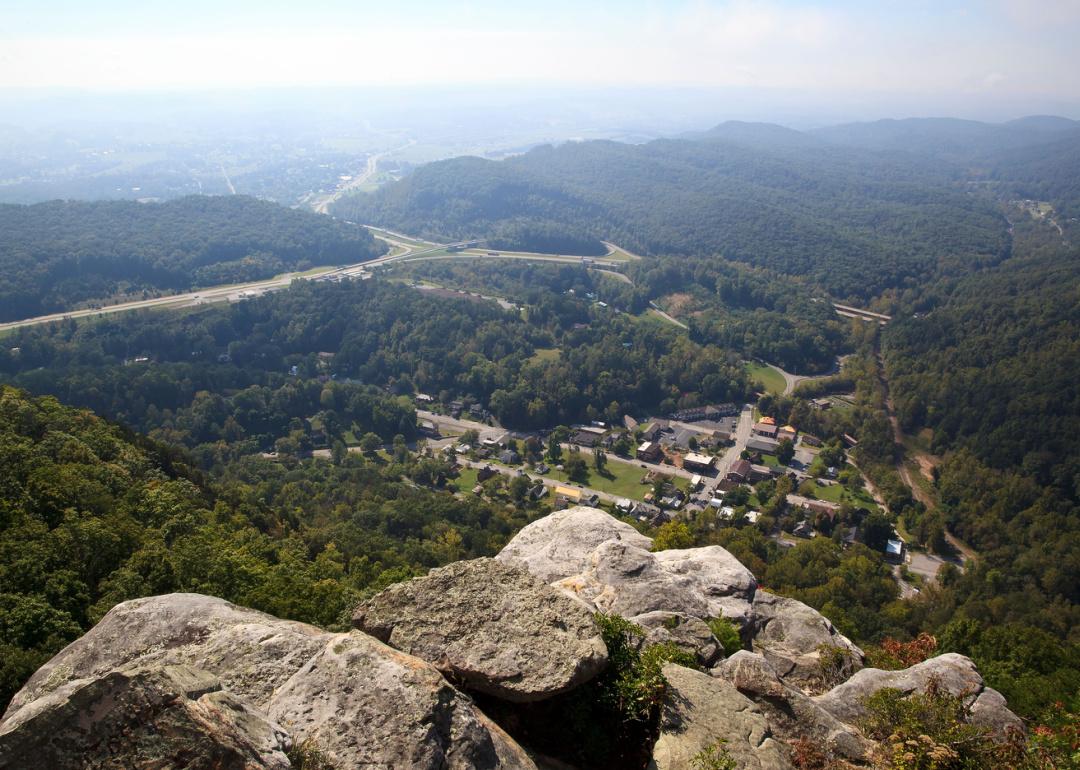
Jill Lang // Shutterstock
#1. Middlesborough, Kentucky
Cumberland Gap from Pinnacle Overlook.
– Total population: 10,207
– Share of adults who are depressed: 32.3%
Data reporting by Elena Cox. Story editing by Jeff Inglis. Copy editing by Tim Bruns.